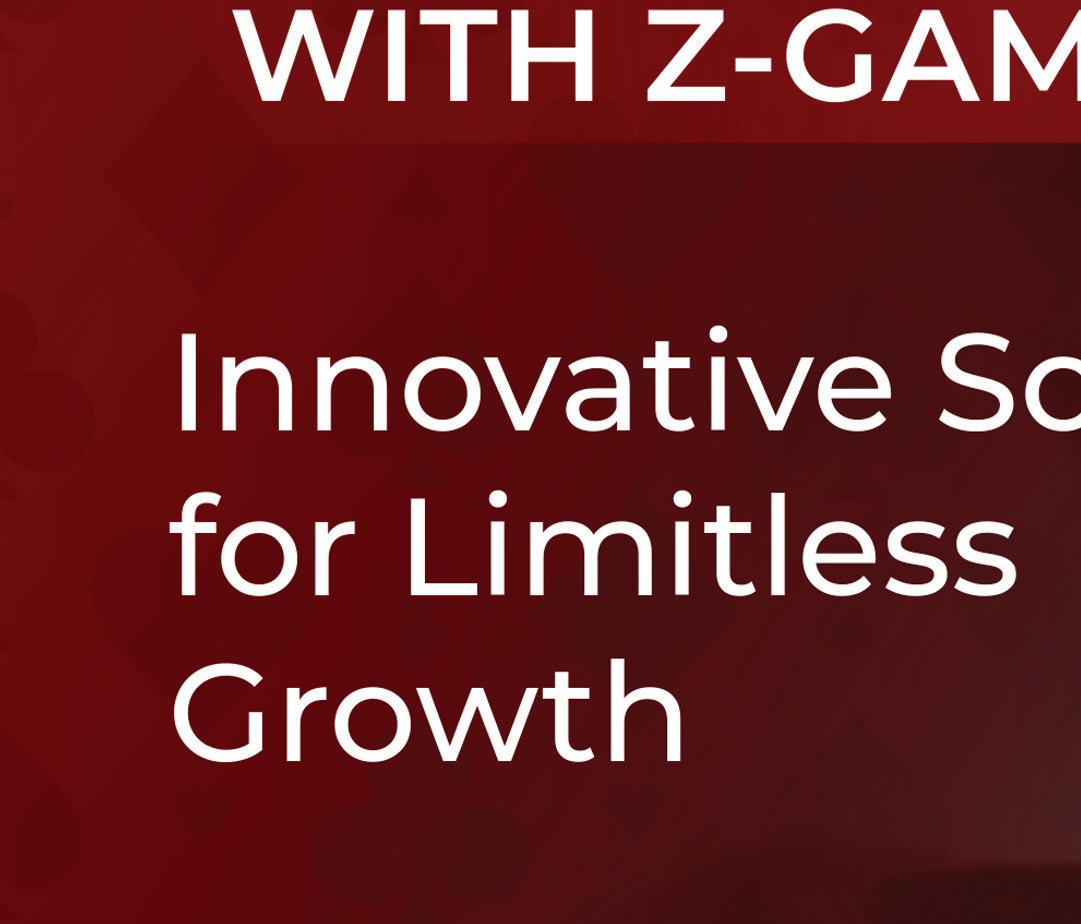











Market focuses on South Korea, Thailand and Australia SiGMA Asia preview and the latest POGO developments Company profiles: Who’s who of gaming in Asia





Gambling Insider assesses the potential of the UAE’s future gambling market and whether it can hold its own against Macau



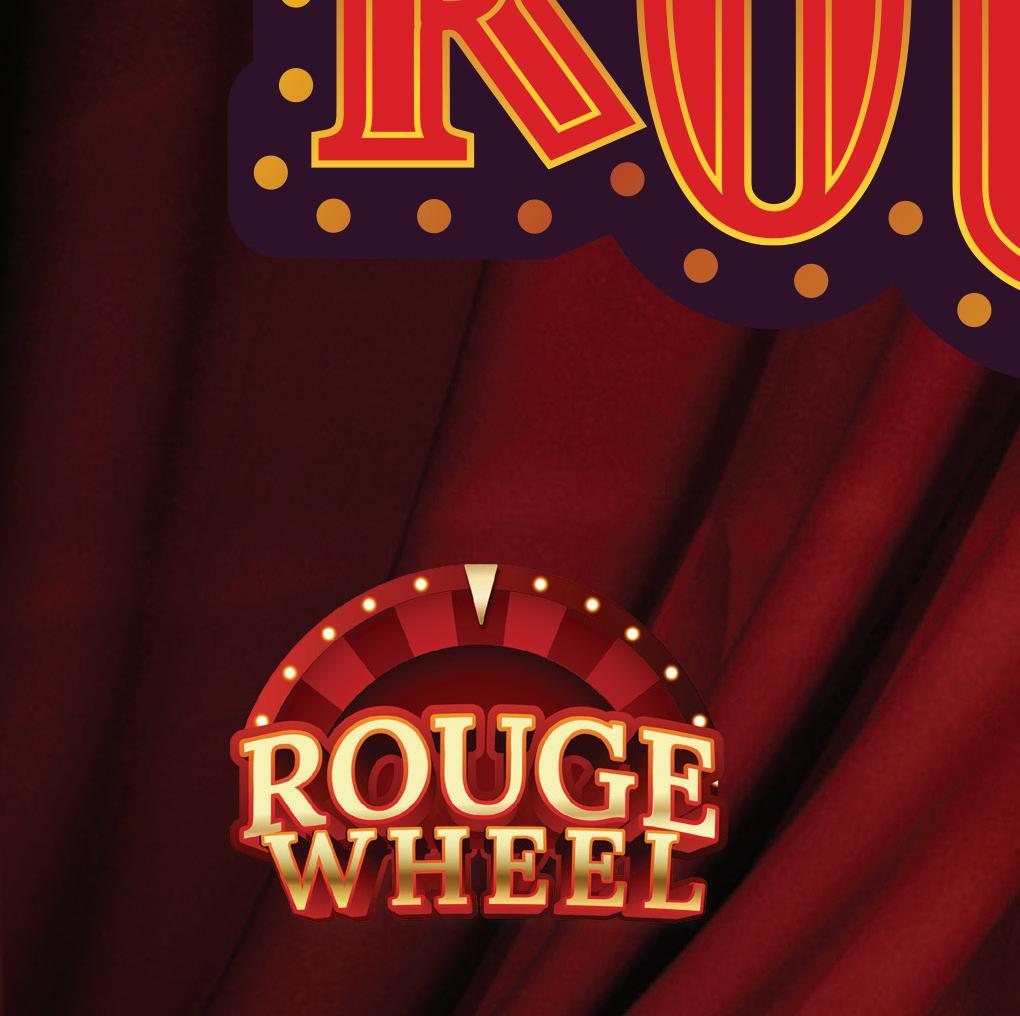

















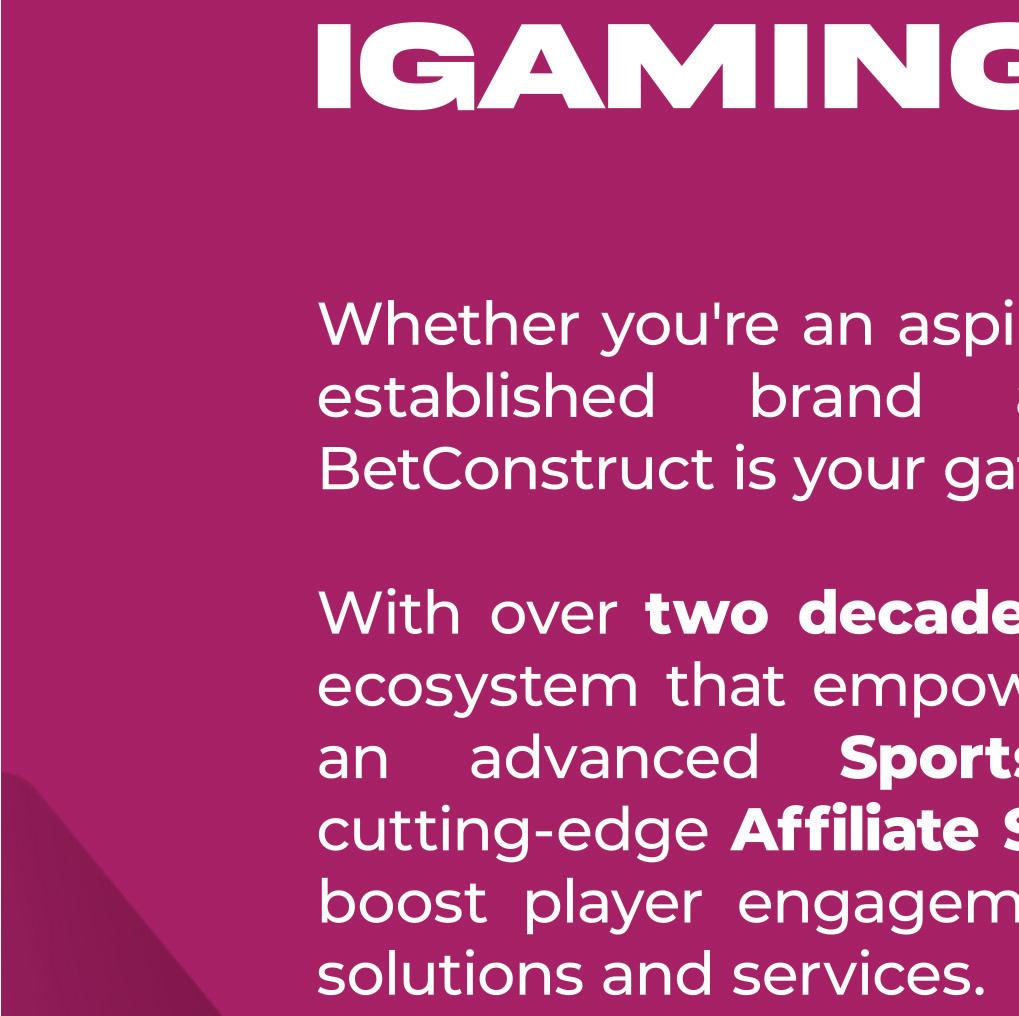


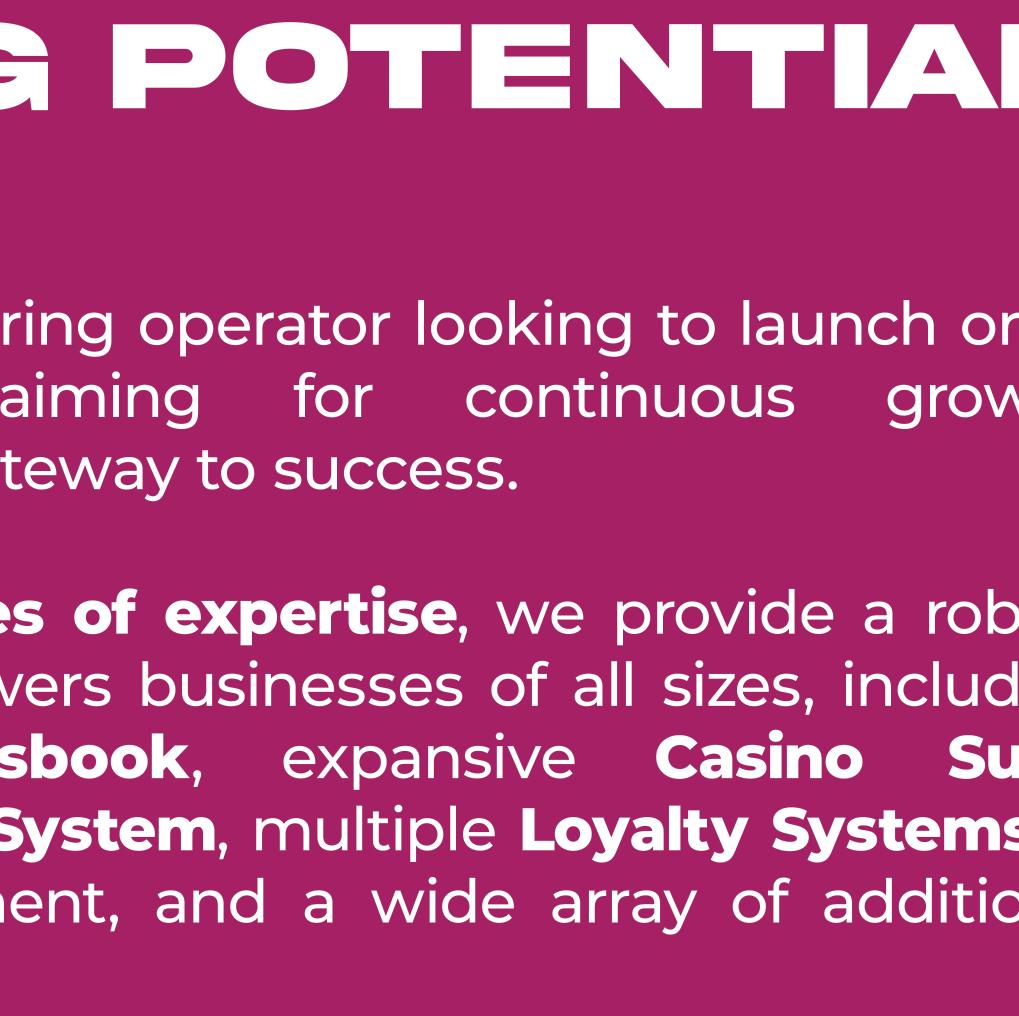







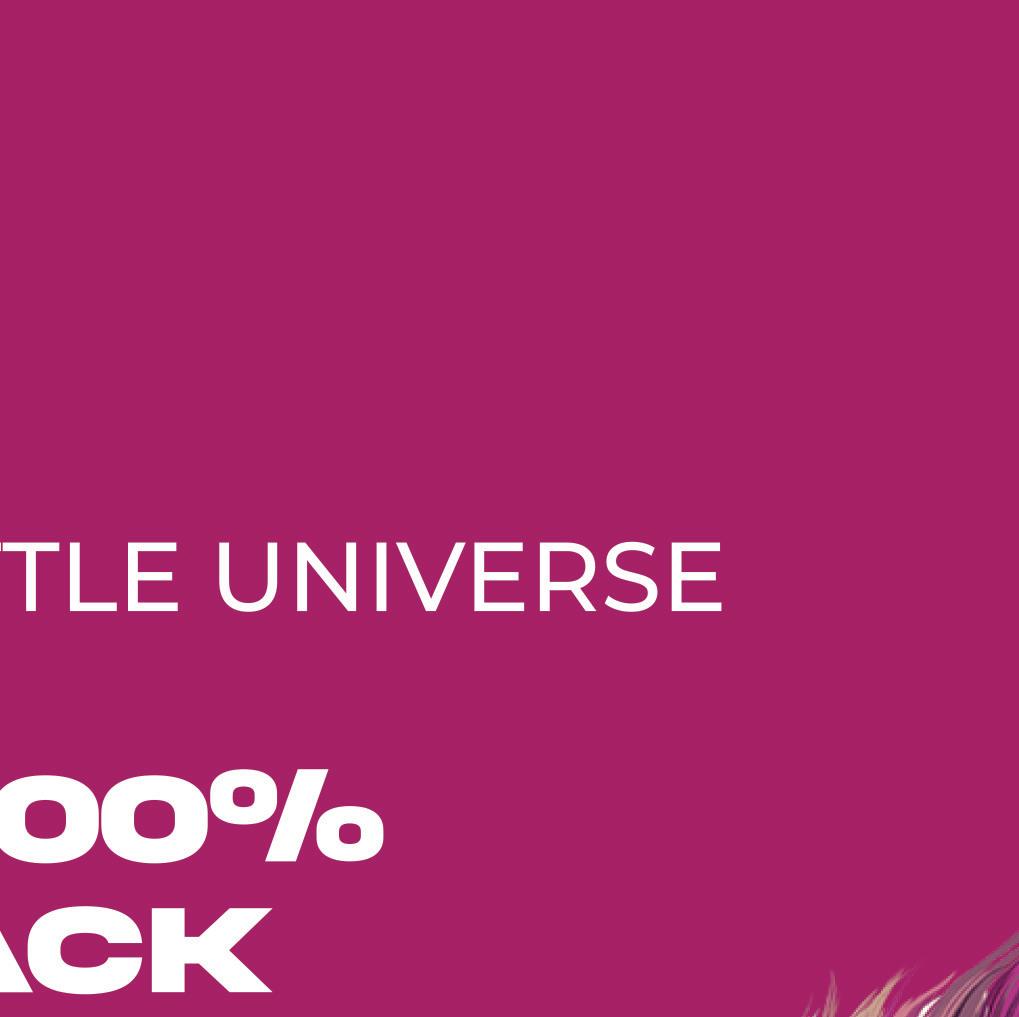

















































If Latin America is global gaming’s current land of opportunity, with Europe and North America offering a more stable level of growth, it is fair to say Asia is currently in a place of greater uncertainty by comparison. Thailand is moving towards gaming regulation, Singapore boasts the Marina Bay Sands but only one other property to provide competition, while the Philippines’ POGO situation creates the most uncertainty of all.
There is still plenty of growth to be enjoyed in the Philippines, but 2025 will be an interesting case study after POGOs (Philippines Offshore Gaming Operators) officially ceased all activity in December. Macau, meanwhile, remains the gambling hub of all gambling hubs, but still recently endured year-on-year revenue dips and remains short of pre-Covid-19 figures. Looking at Asia-Pacific, Australia continues to suffer from its operators’ regulatory transgressions and financial instability, while Mohegan has lost ownership of its Inspire property in South Korea –only a year after the resort’s grand opening.
So where may Asia’s next realistic hope of undeterred growth be? Well, while it is yet to launch in every form, there have been small whisperings that the United Arab Emirates could be a potential long-term challenger to Macau. Currently, there is a regulated lottery in place within the UAE and no other forms of gaming. But its regulator, the General Commercial Gaming Regulatory Authority (GCGRA), offers licences for both land-based and digital gaming.
It has not exactly started small with its first licensees, either, with industry giant Wynn Resorts due to open its Wynn Al Marjan Island integrated resort in 2027. Meanwhile, another industry giant, Aristocrat, has been awarded the country’s first supplier licence (which covers both land-based and online). Wynn was one of the first companies to venture to Macau, of course, and the UAE should be able to attract lucrative casino clientele.
Can the UAE challenge Macau? We explore that very possibility in our cover feature, examining whether Asia may have a big new player in its arena. We do, however, look further afield in the rest of our magazine, with market focuses on some of the familiar names I mentioned earlier. Indeed, for readers interested in the Philippines, we preview both the Global Gaming Awards Asia-Pacific and the SiGMA Asia Summit in Manila. We also deliver a comprehensive update on the latest POGO situation.
In South Korea, we look at Inspire’s ownership transition from Mohegan to Bain Capital, while we, too, offer updates on Australia and Thailand. Last but not least, we have company profiles from some of the biggest suppliers targeting Asian-facing markets, as we look to bring you the most comprehensive analysis of one of the most fascinating regions in the world.
the most fascinating regions in the world.
TP,
Editor







10





























GLOBAL GAMING AWARDS
ASIA-PACIFIC 2025
Gambling Insider previews the upcoming Global Gaming Awards Asia-Pacific
12 SIGMA ASIA PREVIEW
We also preview SiGMA’s annual Asia summit in Manila
18 POGO-ING, GOING, GONE?
GamblingInsider reflects on the Philippines market one year after the POGO ban
24 CHALLENGING A GIANT
With insights from industry experts, we explore the potential of the UAE’s emerging market and what it may mean for Asia’s current biggest market
38 GAMBLING ON THAILAND
Capitalixe Co-Founder and CGO Lissele Pratt breaks down the facts for operators looking to enter the soon-to-be regulated Thai gaming market
42 WHAT HAPPENED TO MOHEGAN INSPIRE?
Gambling Insider investigates the fate of Mohegan’s Korean Inspire Resort after Bain Capital’s takeover
46 WISH UPON A STAR
GamblingInsider analyses how the history of The Star Entertainment and The Bell Review will impact the operator’s future

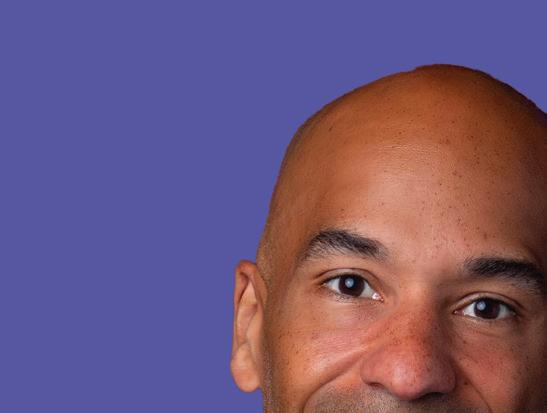









































Following the successful rst-ever in-person Global Gaming Awards Asia-Pacific last summer, the industry’s most prestigious awards return to Manila for the 2025 ceremony. This year’s Awards mark the Asia-Pacific Global Gaming Awards’ fourth outing and will bring together delegates from all corners of the industry on 3 June to celebrate the best and brightest the region has to o er in gaming. Now, with the shortlisting process currently underway, the industry will continue to hold its breath prior to the unveiling of the full Shortlist of nominees to the public in early May.




The Global Gaming Awards Asia-Pacific’s highly anticipated fourth outing sees a celebration of all the best the region had to offer over the past year
With over 10 years of memorable celebrations in Las Vegas, London, Manila and Barcelona, the Global Gaming Awards has garnered a reputation of excellence that – year in, year out – attracts the most influential members of the industry. This year will be no different, as the luncheon awards ceremony is set to be held during day 2 of the SiGMA Asia Summit at the SMX Convention Center in Manila, Philippines. Indeed, the self-nomination process for this year’s event ran from 20 January to 7 March, with the Awards team undergoing a rigorous selection process via consultation



with independent specialists prior to releasing the finalised Shortlist selection. Successfully nominated candidates will be contacted in April, prior to the official public release of the full Shortlist. Then, from 21 April, voting commences.
During the closing week of April, the Judging Panel will cast their votes for both a winner and runner-up across all categories. The Panel is made up of carefully selected industry experts who, of course, will be excluded from voting within any categories in which they have a conflict of interest. As always, the voting process will then be





independently adjudicated by KPMG in the Crown Dependencies.










KPMG has been the Global Gaming Awards’ official voting adjudicator since the very first Las Vegas ceremony over 10 years ago. Commenting on the organisation’s relationship and commitment to the Awards ahead of this year’s Asia-Pacific ceremony, Micky Swindale, KPMG Global Gaming Team Partner, said: “We review the Global Gaming Awards’ system and tools for collecting votes, check that judges weren’t allowed to vote in categories where they have a conflict and confirm that the winner and runner-up in each category has been determined correctly based on votes cast. Finally, we select a random sample of judges whom we contact to verify the system has accurately recorded their votes.
“KPMG’s commitment to and involvement with the gaming sector is unparalleled and that is why we have so welcomed the opportunity to support the Global Gaming Awards events for the EMEA, Americas and as of 2022 – Asia-Pacific. The combination of a thorough Shortlisting process, a highly distinguished; panel of judges, and the organisers’ commitment to independent verification of the judges’ decisions, means any company or individual that makes it to the final Shortlist should be extremely proud.”
Of course, it has been a big year in Asian gaming since last year’s Global Gaming Awards Asia-Pacific. The Philippines has, itself, undergone a period of turbulence related to its illegal offshore gaming operator (POGO) crackdown during the second half of 2024. The nation has seemingly managed to weather the storm as, despite the intensified global press and dramatic sequence of police raids and manhunts, a recent PAGCOR report highlighted that the nation’s gambling industry saw 25% growth in 2024.
Elsewhere, there have been legislative

movements that saw the opening up of new industries across the Asian continent. Indeed, the UAE’s newly launched national lottery programme, paired with the recent passing of casino legislation in Thailand and the continuous diversification of Macau, have reshaped the Asian landscape over the past 12 months.



In the Pacific region, New Zealand has initiated plans to fully regulate its gambling market during 2026, while Australia has continued to grapple with its own regulatory issues, in the strengthening of protection and observation laws across the nation.


Naturally, this only offers the briefest of snapshots into the key events of AsianPacific gambling since last year’s Awards. However, it serves to highlight the significant changes that have been spurred on by the tireless efforts of some of the industry’s


















finest champions; individuals who, of course, deserve to be celebrated via the acknowledgement the Awards provide.


Also expressing excitement about this year’s Asia-Pacific ceremony in Manila, Mariya Savova, Event Manager of the
Global Gaming Awards, said: “The Global Gaming Awards were launched to recognise and reward the dedication, hard work and continuous innovation made by our industry. These are the most prestigious in the gaming industry, and we ensure we maintain this reputation year after year. These are the only Awards that give a reason why each company and individual is nominated, and we release all those reasons in the public domain.
























- p a c ific

“To keep things fair, we ensure companies are only nominated once per category, meaning that, if a company has multiple brands, only one of them can be Shortlisted in a particular category. Moreover, we have a stellar panel of senior industry executives, all with vast experience and knowledge of the APAC gaming market, choosing the winners. Only one executive per company is allowed to participate and KPMG in the Crown Dependencies adjudicating the voting process to ensure transparency and fairness.”

In an industry as fast changing and diverse as gaming, moments of reflective celebration provide motivational fuel to the vital lifeblood of innovation. Herein lies the purpose of the Global Gaming Awards, which promises to provide another outstanding afternoon of celebration on its fourth Asia-Pacific outing.

The return of the Philippines’ annual summer gaming summit sees all eyes descend on Manila once again for SiGMA Asia 2025
It’s that time of year again – and, as summer approaches, so does the SiGMA Asia Summit 2025. Following last year’s successful outing, the show is set to return for its third iteration since SiGMA launched its Philippine exhibition in 2023. The event is set to attract delegates from across the global gambling industry for a range of networking and social opportunities as companies look to showcase their latest offerings in the Asian market. Indeed, between 1-4 June 2025, Manila will see an influx of an estimated 20,000
delegates from all four corners of the global gaming industry bound for the SMX Convention Center. Among them, government officials, C-Level executives, industry influencers, innovators and regulators seek to both discover and unveil the latest innovations within the Asian market.
This third outing of the SiGMA Asia Summit comes 11 years after the first ever SiGMA conference held in Malta in 2014. Now, SiGMA operates a growing number of gambling expositions across the globe, following recent launches in
the United Arab Emirates in 2021 in Dubai – followed by Toronto, Belgrade and Brazil –with the first ever SiGMA in Rome also set to be held in late 2025.
The conference in Manila, however, represents one of the core events around which gambling businesses in the region arrange their annual calendar and is set to attract a number of operators to the Philippine capital in June. In fact, the predicted number of operators set to be attending this year’s show may even be expected to represent a rise in comparison to 2024, although it

remains to be seen how the outlawing of Philippine Offshore Gaming Operators affects this.
The Philippines is, of course, a core gambling market in the Asian region as well as on the global stage – and one that has undergone some changes since 2024’s SiGMA Manila show. 2024 was a year that saw the nation surpass its revenue targets and achieve the highest GGR in the country to date – a piece of news which acted as a healthy antidote to the now-resolved POGO headache that gripped the market over the course of the year.
Indeed, many of the issues related to the Philippines’ illegal offshore gambling operators have now been remedied by the nation’s main gambling representative – regulatory body and operator, the Philippine Amusement and Gaming Corporation (PAGCOR). The organisation is, of course, also heavily involved with the nation’s largest gambling exposition of the year. As such, SiGMA Asia Manila is an officially PAGCOR-endorsed event. The company’s Managing Director for Asia, Neil Shih, stated the following ahead of the show: “It is with great pleasure that, on behalf of the Philippine Amusement
and Gaming Corporation (PAGCOR), we extend our full endorsement and enthusiastic support for SiGMA Asia 2025. We are excited to see this premier event take place.
“ PAGCOR recognises the vital role that SiGMA Asia plays in uniting industry leaders and key stakeholders from the gaming and technology sectors. This event not only showcases cuttingedge innovations but also underscores the Philippines’ position as a leading destination for business, collaboration; and excellence in the gaming industry.
“We are proud to lend our support to this initiative, which perfectly aligns with our ongoing commitment to fostering the growth and sustainable development of the regulated gaming industry in the Philippines.”
Coinciding with the conference and developed in partnership with SiGMA, a PAGCOR-operated retreat for 120 land-based operators is set to run from 1-4 June – in which delegates can enjoy a round-trip airfare, exclusive entertainment activities and luxury accommodation alongside full access to the SiGMA Asia expo. Indeed, the retreat looks to bring together a number of key executives from the land-based sector – which is set to make up half of the ground floor at the SMX Convention Center – for networking and other opportunities.
As delegates arrive prior to the event, Sunday 1 June sees a SiGMA official pre-event celebration party at Uma Nota Manila – a Japanese Brazilian fusion restaurant in the heart of the city, which is open to premium and platinum ticket holders. Following on from this on 2 June, pre-registration for the conference takes place alongside a welcome drinks reception and evening poker tournament.
The event launches into its first day of exhibition on the Tuesday, with the industry’s best and brightest showcasing their newest offerings – alongside commentary from industry experts on the latest happenings across the globe in the form of informative panels and presentations. SiGMA Manila officially runs from 10am to 6pm on both Tuesday 2 and Wednesday 3 June – closing with networking drinks, an iGathering dinner and the SiGMA official celebration party from 10pm until late – held at XYLO at The Palace club, open to all event ticket holders.
This year’s SiGMA Asia exhibition also sees the organisation provide a platform for up-and-coming innovators within the gaming industry with the latest outing of the SiGMA Pitch – which offers support to young, developing businesses and the people behind them. Indeed, SiGMA Pitch 2025 looks to replicate its popularity from last year’s outing as it attempts to connect fledgling businesses with investors and industry mentors – offering a selection of 100 startups the chance to present, pitch and showcase their initiatives and products during the exposition. Following the respective pitches, a panel of judges will select the top six companies – who will present their respective pitches during the final legs of the exposition.
With the increasing diversification and prevalence of Macau on a global scale – alongside the announcement of new casino locations in Thailand, a growing industry in the UAE and the continued maturation of the Philippine landscape – Asian gambling is one of the most exciting facets of the developing global industry in 2025. This, therefore, makes SiGMA Manila one of the most important expositions of the year for delegates with an interest in the Asian landscape.
“With the increasing diversification and prevalence of Macau on a global scale – alongside the announcement of new casino locations in Thailand, a growing industry in the UAE and the continued maturation of the Philippine landscape – Asian gambling is one of the most exciting facets of the developing global industry in 2025”
With a driven team of energetic and chargedup professionals, Gameplay Interactive has constantly delivered premium products and hit our milestones. This is because we understand today’s fast-changing gaming landscape and the imperative need for us to continuously innovate. 20+ Live Dealer Tables | 100+ Slot Titles | 40+ Lottery & Games Making sure our games adhere to the most stringent regulatory requirements matters to us. This is why our products are certified by world-leading test labs, BMM (Live Casino) and GLI (Slots).
Nothing beats the Live Casino game experience when it comes to bringing real time excitement and instilling a sense of trust among players. Our premium Live Casino product offers a wide range of solutions to address all types of business needs.
We bring you these groundbreaking “First in the World” products that have never been seen in the market.
Super features are applied to games to randomly boost odds, creating a thrilling atmosphere as players anticipate and celebrate the potential for significant wins.
Utilising Chroma key technology, our live tables are seamlessly integrated into diverse virtual environments, enabling players to immerse themselves in thematic experiences.
Random number generated (RNG) tables combined with meticulously crafted 3D animated dealers – offering fast-paced, highly secure gameplay, alongside the uninterrupted experience of continuous side bets.
2D, 3D, 7-seater, multi-table and good road quick bet.
Full featured version with routes and history. Embedded with Mini Slots to top up the list.
Offering first person experience as if the players themselves are physically seated on the table.
Players can observe real-time bets and winning forms of fellow participants at their virtual table, fostering a sense of community and encouraging strategic betting based on shared insights.
For the opportunist, up to three tables concurrently.
By clicking a ‘good road’ alert, players can access a pop-up interface, seamlessly allowing them to place bets on other tables with good trends without switching.
At Gameplay Interactive, we do not compromise in quality because we believe in only the best equipment. Therefore, we endorse products of only the finest quality.
Our 3D animators, graphic designers and sound artists work closely together to concoct a scintillating gaming experience that captivates and excites players. Our slots offer unique gameplay elements such as jackpot games, cascading reels, cluster wins, exclusive bonuses and free spins. This ensures an exciting and engaging experience with every spin.
With an average of 10 new games per quarter, we are committed to regularly launching new
games to keep the portfolio fresh and exciting for players.
We have a good collection of localised games that resonate with different player bases, featuring themes inspired by Asian folklore, Western mythology, fantasy, adventure and pop culture.
We offer a dynamic mix of number-based lottery games and AI-powered table games, providing a fast-paced, rewarding and engaging experience. Powered by advanced RNG technology and live-draw formats, ensuring authenticity and trust in every result, quick bet placements and instant results help to eliminate long waiting periods while keeping engagement high.
A unique fusion of Poker and Mahjong combines the tile-based strategy of Mahjong with the betting dynamics of Poker for a fresh and thrilling P2P experience.
This game type is designed for skill-based competition, making it a favourite among strategic players. Real-time multiplayer action with seamless matchmaking further makes for engaging gameplay. Robust anti-collusion and fraud detection systems help to maintain fair play, while smart matchmaking algorithms ensure competitive and balanced gameplay.
Our back-office system further offers a complete range of financial reports, analytic tools and player/game analysis.
Elsewhere, we have our customised website with a full range of supporting systems (CRM, payment gateways, anti-fraud system, marketing tools, affiliate system, etc.).
Available for existing online operators who wish to include our products, on common and standalone wallet methodologies.




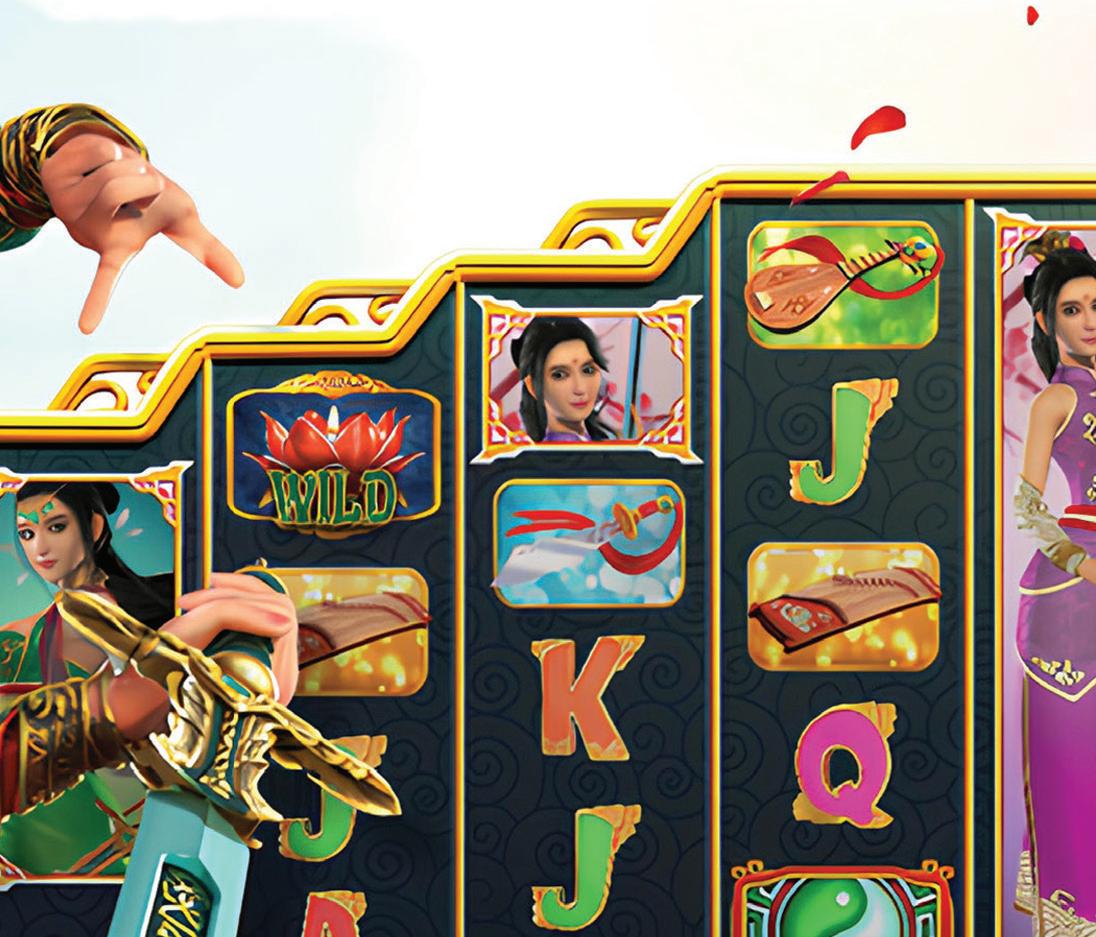





& commercial
In the
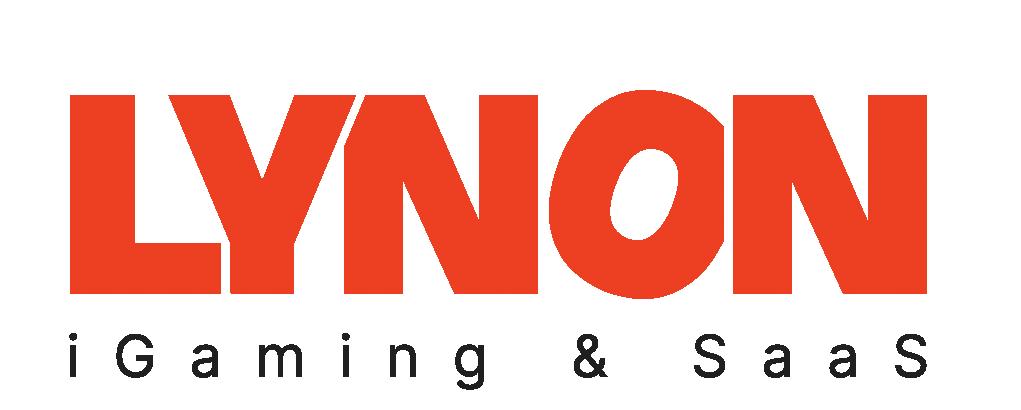
Rooted in the simple belief that partners should lean on expertise rather than become overly dependent – Lynon strives to offer steady assistance without overwhelming demands. The company provides solutions designed to remove initial barriers and allow new ventures to begin with clear, unobtrusive support.
Lynon’s suite of offerings includes fully functional casino websites, adaptable CRM and affiliate solutions; all intended to help partners progress without complexities. The platform incorporates practical tools like multi-wallet support, exchanger functionality and consistent performance tracking. These features are not presented as grand claims but as functional components that enable operators to focus on business growth instead of getting entangled in technical difficulties. Every element is designed to make operations smoother and more efficient, ensuring challenges are met with calm and measured responses.
At the core of Lynon’s philosophy is a commitment to flexibility and cumulative expertise in iGaming. Embracing the idea of “lean on” rather than “depend on,” the company prefers to offer support that adapts to each partner’s needs instead of imposing rigid conditions. Instead of high upfront costs, Lynon provides flexible terms that are adjusted based on the specific circumstances of each partner. New entrants often benefit from free access to essential tools, which helps them establish a secure foundation with minimal risk. This measured approach encourages organic growth and allows businesses to develop gradually and steadily.
Technological capabilities at Lynon are applied with quiet confidence rather than bold self-promotion. Utilising a modern SaaS model, Lynon’s technical team focuses on creating a supportive environment that meets various operational needs without drawing unnecessary attention to the underlying complexity. For example, features like uninterrupted service during updates and carefully designed gamification tools are integrated to offer partners additional stability and space for constant growth. The company aims to make advanced tools accessible straightforwardly, fostering a sense of trust and reliability in business decisions.
Partnership, for Lynon, means sharing a long-term vision rather than merely supplying technological tools and claiming significant upfront fees. Flexible fee structures and performance-based incentives are part of this approach, ensuring progress is met with practical support and equitable rewards. Fee structures, access to key tools, and setup charges are thoughtfully modified based
on a partner’s performance and marketing investment, ensuring newcomers encounter as few obstacles as possible. For example, when Lynon came up with the “5 for 5” offer in April, the operator had the chance to not only obtain a fully operating website for only €5,000 ($5,410) but also get the four other benefits, including three months of free CRM and Affiliates, a yearly Retro bonus of up to 10% from all invoices paid to Lynon from its GGR throughout the year and the opportunity to later get the source code within five years as a gift when reaching certain KPIs.
The Lynon Prime plan, for instance, offers modest benefits such as access to gamification tools and dedicated account management for partners who meet specific benchmarks. These offerings support success in a quiet, understated way, building a community where every partner feels valued. The Lynon Prime program also provides additional support through enhanced communication, including access to senior management, ensuring every partner has a dependable resource when challenges arise.
In summary, Lynon strives to be a supportive and dependable ally in the iGaming industry. The company’s emphasis on practical support has allowed Lynon to build a community where progress is shared, and success becomes a collective achievement. Through sustainable, simple strategies and a focus on mutual respect, Lynon is committed to nurturing long-term relationships that enable partners to lean on their expertise while growing independently.
“Lynon’s suite of offerings includes fully functional casino websites, adaptable CRM and affiliate solutions; all intended to help partners progress without complexities”






























As we head into Q2 2025, Gambling Insider’s Megan Elswyth takes a look at the first year since the Philippines’ POGO ban, and how it is still continuing to affect the country
POGOs had been a hub for organised crime for a long time before they were regulated by President Rodrigo Duterte. Despite hopes that they would go straight once the licensing system was introduced, with each subsequent police raid on hubs, it became obvious that this hope was futile. As news of the crimes committed at these properties began to spread, the Philippines was under increasing pressure from neighbouring countries to take action. At the request of the Indonesian Embassy, the POGO hub at Lapu-Lapu City was raided and 162 foreign nationals were rescued, including several children. When the Pasay hubs were raided, authorities found “aquarium” viewing areas inside for trafficked women and other equally distressing rooms. As the crimes continued to mount up, it’s no surprise that President Ferdinand Marcos Jr. pulled the
plug on 22 July 2024 when he introduced the ban.
POGOs have been a staple part of the Philippines’ gambling ecosystem for a very long time. At their peak, there were around 40,000 POGO employees registered under PAGCOR, so it was going to be no easy feat to stamp them out of the country. Since the ban, there have been dozens of raids, arrests and even job fairs. We’ll present a round-up of the biggest events since then.
When POGO hubs in Bamban, Tarlac and Porac, Pampanga were raided last spring by the Criminal Investigation and Detection Group (CIDG) and the Presidential AntiOrganized Crime Group (PAOCC), more than 1,600 employees were rescued, including
hundreds of foreign workers. Land deeds, vehicles and electricity bills on the compound were linked to Bamban, Tarlac Mayor Alice Guo, who was arrested and charged with a long list of o ences, including multiple counts of human trafficking and money laundering. She has also been linked to the largest money-laundering case in Singapore’s history, totaling S$3bn (US$2.24bn) in assets. While Guo initially claimed she would run for re-election as mayor, she has since retracted this. The trial is still ongoing – and Guo is denying all allegations against her.
Amid all of the police raids, PAGCOR set a strong precedent in December 2024 by sending Chairman and CEO Alejandro Tengco to shut down Island Cove, Cavite in person. This hub was one of the largest of its kind in the Philippines, stretching across 57 buildings
on 33 hectares and supporting a community of over 30,000 people. As well as POGO-related o ce space, the hub also included peripheral businesses such as employee dormitories, gaming hubs, cafés, grocery stores, clinics, restaurants, spas and beauty salons.
It is generally accepted that POGOs rst started appearing in the Philippines in 2003, but they gained unprecedented traction in 2016 when then-President Rodrigo Duterte licensed them for online gambling. Despite criticism from other countries, including China, Duterte continued to defend the decision, citing the job opportunities and increased revenue that o shore gambling operations o ered the country. By 2019, PAGCOR had licensed 300 POGOs and collected around PHP14.44bn ($250m) in taxes from them, but this boom wouldn’t last long. As with many industries, the global pandemic would take its toll on POGOs and when Duterte’s Presidency ended in 2022, they lost their biggest supporter. They would remain in a political grey area until 2024, when they were ultimately banned. Any remaining support or nostalgia for the o shore operations was quietly quashed when Duterte was arrested and extradited to The Hague on 11 March 2025. According to the International Criminal Court, he faces charges of crimes against humanity.
Amid all of the police investigations and international courts, there is one glimmer of hope in the Philippines in the wake of the POGO bans. The Philippines’ Department of Labor and Employment (DOLE) has been holding regular job fairs for displaced Internet Gambling Licensee (IGL) workers. Half a dozen of these job fairs have been held in major cities across the country, including Parañaque City, Makati City, Cavite province and Pasay City, with over 3,000 vacancies available. Hundreds of workers were hired on the spot. Although this represents only a small percentage of the 40,000 estimated displaced workers, many of the ex-POGO employees are reportedly hesitant to accept entry-level positions and are instead trying to nd similar work in the IT-Business Process Outsourcing (IT-BPO) sector.
With PAGCOR set to lose billions in revenue from POGOs each year, there was some concern that the ban wouldn’t be upheld permanently. However, the latest reports from the regulator show that despite the ban, the Gross Gaming Revenue (GGR) actually rose 25% annually to PHP410bn in 2024. While Tengco attributed this strong performance to “strategic policy adjustments


that we have implemented, such as the gradual reduction of fee rates for e-games since 2023”, the most important nancial results are still yet to come. 2025 is the rst year without regulated or taxed POGO operations, and as Tengco concluded himself, “the best days of Philippine gaming are still ahead of us, and we look forward to working with all of you to shape what comes next.”
The current POGO ecosystem seems pretty clear: The offshore gaming operations are illegal, but they make a lot of money; so for the moment, it seems it will be a game of cat and
mouse between the larger, more obvious operations and the authorities until they are pushed completely underground. Even then, accidents can happen. A recent police raid in pursuit of a robbery suspect in Makati inadvertently uncovered a POGO hub operating on the 21st oor of Yuchengco Tower in the RCBC Plaza on Ayala Avenue in Manila – one of the most recognisable complexes in the country, which also housed the Irish, Australian, South African and Canadian embassies. While we will see continued raids against POGO hubs, as long as the ban holds, these will no doubt decrease in time as the Philippines continues to focus on a regulated and legal casino ecosystem.

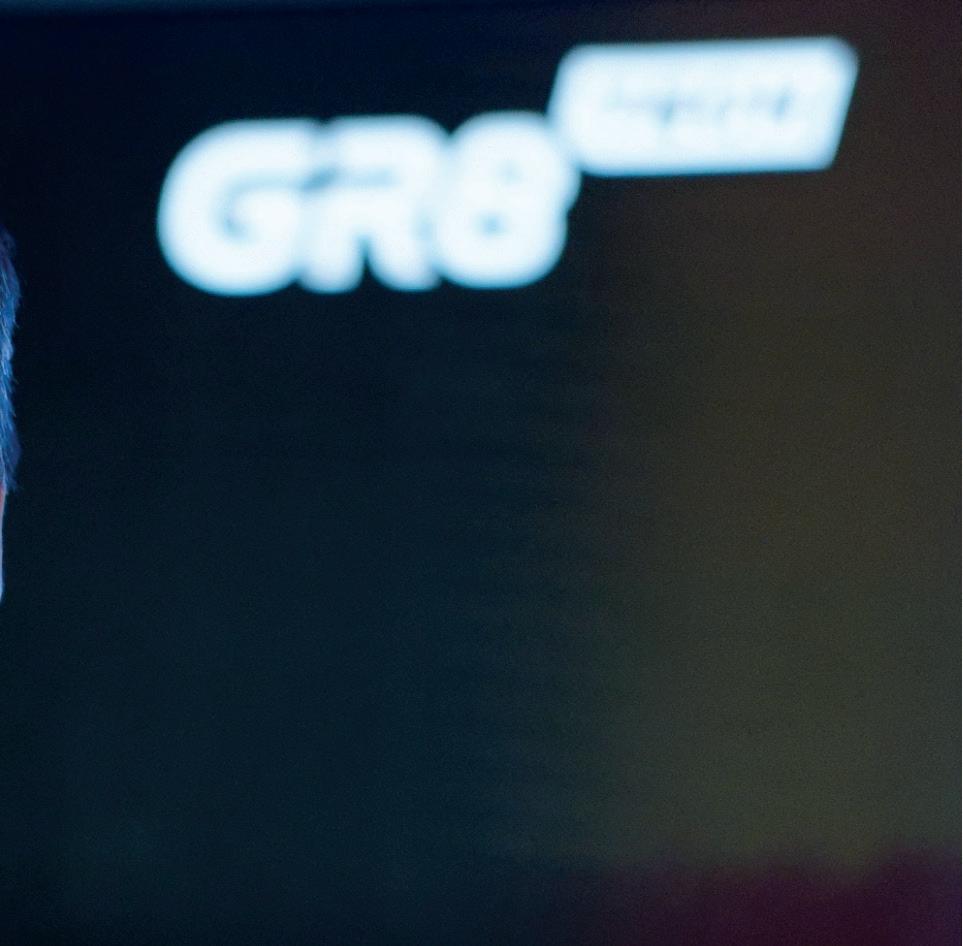
Asia is a uniquely diverse region and adapting to its complexities can be a real challenge for many operators. Understanding this, we at GR8 Tech are committed to the geo-speci c approach – basically, localisation, but cool. The GR8 Tech Platform’s geo-speci c presets enable quicker brand launches in Asia, and higher engagement and retention with local audiences – twice as high compared to global setups. But it’s not something that can be achieved overnight. We’ve spent countless hours researching and adjusting our platform to ensure it runs smoothly across Asia and meets the needs of its incredibly varied player base. Along the way, we’ve learned that succeeding in this market is about getting the details right.
What do Asian players like?
Live casino games dominate the Asian market, with baccarat, dragon tiger, sic bo and fan-tan being the top choices. Players expect a highly immersive experience, which is why localised live dealers speaking many languages, including Mandarin, Cantonese, Thai and Vietnamese, are crucial. Slot games in Asia need to truly resonate with local players. Japan favours animethemed slots and pachinko-style games, while China, Vietnam and Thailand prefer designs featuring lucky symbols like dragons, gold and the number eight. Incorporating cultural elements into slot offerings increases engagement and retention.
Asia has unique and sometimes unconventional gambling formats. Cockfight betting (e-Sabong) was a billion-dollar industry in the Philippines before its ban in 2022, and offshore operators still attract bettors with live-streamed events. In Thailand and Vietnam, players engage in beetle fights, while Cambodia and Myanmar feature spider, frog and scorpion racing as betting options.
What can operators do to be attractive in Asia?
To succeed in Asia, operators must go beyond o ering popular games or sports and localise their platforms. That means adjusting everything from language settings and odds formats to sportsbook layouts highlighting the right games, sports and tournaments for each market. Asian players have clear preferences when it comes to promotions, too. Cashback offers of 0.5-1% on bets perform far better than traditional deposit bonuses, especially in Vietnam, Thailand and Indonesia. High rollers expect VIP treatment with personal managers and exclusive takeback deals, while gamification tactics like “Spin the Wheel” mechanics are becoming a standard in VIP programs across Thailand and China. Technology also plays a crucial role in delivering a smooth user experience. The absence of local servers often causes delays for global operators, impacting performance. To
address this, GR8 Tech began migrating to local servers in Asia, where a frontend migration alone delivered a 25% performance boost.
Operators also need to stay competitive with pricing – Asian markets tend to run on lower margins compared to Europe or LatAm, making aggressive odds a must.
What a geo-speci c solution looks like in practice
We can discuss the features and essentials of Asian markets all day, but we all have things to do – so let’s get more practical. How would a geo-speci c solution look for, say, India? A truly localised platform would be cricket- rst, with kabaddi also having visibility. The casino section would highlight Teen Patti, Rummy and Bollywood-themed MegaWays slots to appeal to local preferences.
Payments would be optimised with UPI, Paytm and NetBanking for smooth transactions, while multi-language support (Hindi, Tamil, Telugu, Bengali) ensures accessibility. Retention efforts would focus on personalised promotions, gamification and a strong CRM strategy to prevent churn after major cricket events. Festival-driven marketing campaigns and tailored cricket season offers would complete a competitive, market-fit approach.
Now, let’s take South Korea as another example. A fully localised platform would prioritise sports betting, especially football (K League, Korea Cup), baseball, basketball and horseracing. Given the country’s passion for esports, major League of Legends, StarCraft and Valorant tournaments should also be included. The casino section would focus on hold’em poker variations and traditional Korean card games like go-stop and hwatu. South Korean players expect gamification elements that enhance engagement and reward loyalty. For transactions, the platform would integrate local payment options like KakaoPay and Toss, as well as cryptocurrency, ensuring easy deposits and withdrawals. The key to long-term success lies in understanding market nuances and providing a world-class user experience. The examples above are just the beginning of what a geo-specific solution can achieve – and, more importantly, how it can transform iGaming operations. Connect with us at GR8 Tech to unlock Asia’s full potential with tailored solutions that would take your iGaming business to the next level.




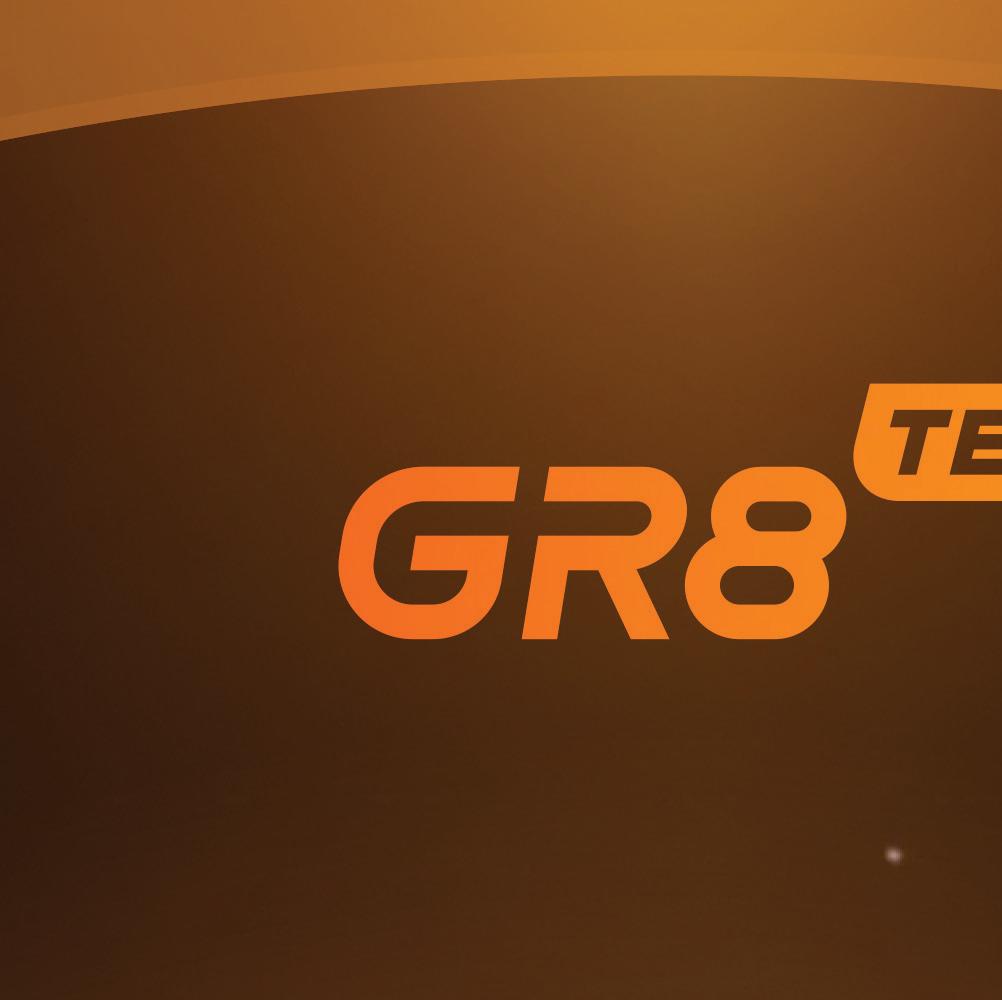

























As a leading entertainment equipment manufacturer in Taiwan, Jumbo Technology brings over 25 years of expertise in both land-based and online solutions. Committed to delivering thrilling-yet-responsible entertainment, Jumbo proudly unveils its latest innovations at SiGMA Asia and G2E Asia.
Marking its 25th anniversary, Jumbo Technology is set to revolutionise the industry with its cutting-edge omnichannel solution, seamlessly linking jackpot prizes across land-based and online platforms. Imagine winning a jackpot not just on the casino floor, but also while dining in a hotel, shopping at the mall or even relaxing by the pool. Designed to elevate player excitement, enhance engagement and unlock new revenue opportunities for casinos, this innovation is poised to redefine the future of entertainment technology.
“We are confident this technology will unlock limitless possibilities for the industry and set a new benchmark for innovation.“
Continuing to push boundaries, Jumbo Technology has expanded its flagship




jackpot series to the online world. Players can now enjoy the iconic “Bao Ni Fa” and “Long Yi Fa” jackpot links online, complete with immersive mechanics and an intuitively designed interface. This online expansion delivers an unprecedented entertainment experience, bringing the excitement of Jumbo’s jackpots to a whole new audience.
For a complete experience of Jumbo’s omni-channel and online solutions, visit us at SiGMA Asia Philippines | Booth 2155 | 3–4 June.
At G2E Asia Booth A818, Jumbo will showcase its most comprehensive lineup yet, featuring the highly anticipated “Măn Yì Fā,” “Măn Fú Băo,” “Long Jin Bao” and “Lóng Lái Fā.” Each title is designed with captivating Hold & Spin mechanics , dynamic interactive features and the D-27 dual-screen slot machine, ensuring an unmatched level of engagement
The Măn Yì Fā Jackpot introduces two thrilling Hold & Spin mechanics across
four immersive experiences. Players can activate this feature by landing one to five coins, with additional coins randomly dropping from the Măn Yì Fā Treasure Bowl. This innovative design heightens anticipation while increasing the potential for higher multipliers and full-screen wins. Adding to the excitement, mystery symbols may appear during play. Once revealed, they transform into the same random symbol, maximising winning potential. During bonus rounds, wild symbols apply 2x, 3x or even 5x multipliers, making every spin an exhilarating adventure.
The Măn Fú Băo Jackpot takes interactive engagement to the next level with its outstanding Multi-Feature mechanics , including: “Double,”“Multiplier,”“Extra Spins,” “Boost,” “Collect” and “Extra.” With these engaging mechanics, players can unlock the Grand Jackpot and thrilling full-screen wins, delivering an unforgettable and exhilarating entertainment experience.
At the heart of this innovation is the Jin Bao Feature, where players collect golden ingots to win MINI, MINOR and MAJOR jackpots. Adding to the excitement, rainbow ingots can randomly split into two, four or even eight additional ingots, multiplying rewards and enhancing payouts. Collecting 15 golden ingots unlocks the GRAND Jackpot, delivering unmatched anticipation and excitement. Thanks to Jumbo’s omnichannel technology, players can enjoy Long Jin Bao beyond the casino floor. Whether playing on the D-27 dual-screen slot machine or seamlessly switching to tablets and mobile devices, the jackpot experience remains engaging and exhilarating. This breakthrough ensures that the thrill of winning big is always within reach, no matter where players choose to enjoy it.
Join us & witness the future of entertainment
SiGMA Asia Philippines | Booth 2155 | 3–4 June G2E Asia Macau | Booth A818 | 7–9 May






















O cially, the United Arab Emirates (UAE) came into being in 1971. Back then, the desert expanse was limited in its urbanisation –cities like Abu Dhabi and Dubai were in development, with multi-storey buildings, roads and amenities available, but to nowhere near the scale they are today. Indeed, while oil had been discovered among the former seven Trucial Sheikhdoms in the previous decade, it was the decades to follow that would go on to put the newly formed Asian nation on the map.
Free zone areas to operate business with limited tax, the world’s only seven-star hotel and the world’s tallest building, the Burj Khalifa, came in 1985, 1999 and 2009 respectively. The turn of the millennium saw the UAE not only comfortable in its wealth, but able to use it to build structures bigger and bolder than anywhere else in the world. It also marked a shift in strategy for economic growth. Oil is a limited resource, after all.
Money from business and tourism is now a key priority for the UAE. When visiting, tourists come to see the world’s biggest mall, largest water park or biggest picture frame. It is excess and escapism combined with luxury; words that could also easily befit the land-based casinos of Macau and the Vegas Strip.

of the regulatory structure the regulator created and now exists – to bring that demand into a regulated environment.” Indeed, “years of unregulated gaming” is potentially a contributing factor in the decision to establish regulation. “In any jurisdiction where gaming is unregulated, eventually the decision will be made that it would be better to be regulated for player safety and integrity purposes. It is better to regulate than to try and control it constantly,” Woosley adds.


So, when Wynn Resorts announced plans to begin construction on the nation’s first land-based casino in 2022, interest was piqued. At the time, gaming was unregulated in the UAE. In fact, bar a few exceptions, gambling of any kind was banned in the nation, due to Islamic practices followed by law. But, of course, this did not mean there was no gambling. Before regulation, “there were lottery and raffle offerings that existed in an unregulated environment,” Bishop Woosley, Director of Lottery Operations at The UAE Lottery, tells Gambling Insider. “They were popular and people enjoyed them. I think it’s one of the impetuses
With contributions from Bishop Woosley, Andrew Sackey and Pedro Cortés, Gambling Insider assesses the potential of the UAE market and whether it can hold its own against neighbouring Macau
tourists and high-earning locals balanced with online gaming and lottery for the typical UAE resident.
But, to have a licensed industry, you need licensees...


However, what licensed gaming also brings is tax revenue. Whether from locals or tourists, gaming is a lucrative business, with the European Gaming and Betting Association (EGBA) reporting that gross gaming revenue (GGR) from Europe alone generated €123.4bn ($133.2bn) in 2024, while the American Gaming Association reported FY24 gaming revenue of $71.92bn, up 5% and 7.5% respectively year-on-year. As the UAE looks to continue diversifying its revenue streams by establishing futureproof industries, gambling presents an option that ticks a lot of boxes, with luxury land-based experiences for
In recent years, rules on gaming have changed. September 2023 saw the UAE form its federal gaming regulatory body, the General Commercial Gaming Regulatory Authority (GCGRA), with ExMGM Chairman and CEO Jim Murren as Chair, and ex-Gaming Laboratories International (GLI) VP of Government Relations and General Counsel, Kevin Mullally, as CEO. This, naturally, led to Wynn receiving its licence to operate land-based gaming in the region. But, it was not the only operator to receive a licence.
In fact, Wynn was not even the first operator to receive a licence from the GCGRA. This accolade instead went to The Game LLC, who would operate the nation’s first authorised lottery, aptly named the UAE Lottery. At the time, Murren, Chairman of the GCGRA, said:



“There has been growth in nongaming sectors, with increased investment in entertainment, retail and hospitality. However, gaming still dominates Macau’s economy and the transition to a more diversified revenue base is ongoing” - Pedro Cortés, Managing Partner, Lektou



“The launch of the UAE Lottery is a pivotal event that not only marks the establishment of a disciplined world-class regulatory framework for lottery activities but also underscores our commitment to nurturing a secure and enriched commercial gaming environment in the UAE.”
But how does one go about receiving the first regulatory licence from a jurisdiction? In terms of the measures taken, Woosley says it required “building out the infrastructure, the personnel, our own gaming system,




making sure we were compliant with all regulatory frameworks, making sure we had internal legal and compliance functions that could help us follow and be aware of what the requirements were; and then building internal technical infrastructure so we would be ready. We would have a system, platform, staff and structure so the GCGRA would be comfortable giving us an operational licence.
“It was a huge effort in a very short time period. But the company has done

an excellent job of bringing in gaming professionals from all over the world (more of this later) with various expertise and knowledge. Obviously, that culminated in us winning the licence.”
Casino wise, Wynn received its gaming licence in early October 2024, allowing the operator to continue to development of its 1,500-room property on Al Marjan Island. In the iGaming space, meanwhile, Aristocrat was able to secure the nation’s first gaming-related vendor licence (Novomatic followed as the second) for both land-based and digital gaming at the tail-end of October. Aristocrat Gaming’s VP of Commercial for EMEA & Latam Andrew Sackey tells Gambling Insider : “At Aristocrat, we are always looking for opportunities to be a first mover in all markets as we continue to focus on growth as a key pillar of our business – across land-based gaming and online. The UAE has always been a growth target for EMEA. and there is a lot of interest and excitement around the impact that it could have on the global gaming market.”




But what is the process of gaining a licence from a newly established regulator like? While it could be expected that the process would be bumpy and unpolished, for Aristocrat, this was far from its experience. “The UAE has some of the finest regulatory professionals in the world working alongside applicants who are interested in participating in their business,” says Sackey. “We consider it a privilege to have worked alongside them. We saw some similarities to other markets given the involvement of GLI and other governing bodies, so it was helpful to have that baseline and scale to help drive our application process forward.”



As both Woosley and Sackey mentioned, both the GCGRA and the operators applying for licences from them consist of teams from all over the world. Murren, for example, is the former Chairman and CEO of MGM Resorts, while CEO Mullally was the VP of Government Relations & General Counsel at GLI for over a decade, with other accomplishments including an almost five-and-a-half-year long stint as Executive Director of the Missouri Gaming Commission. The GCGRA came into the industry with the experience to run an expansive operation – and given expectations for what this market may become, that experience will be invaluable.
The global makeup of the GCGRA and the regulated businesses operating in the UAE is reflective of the UAE as a whole. According to statistics, less than 15% of


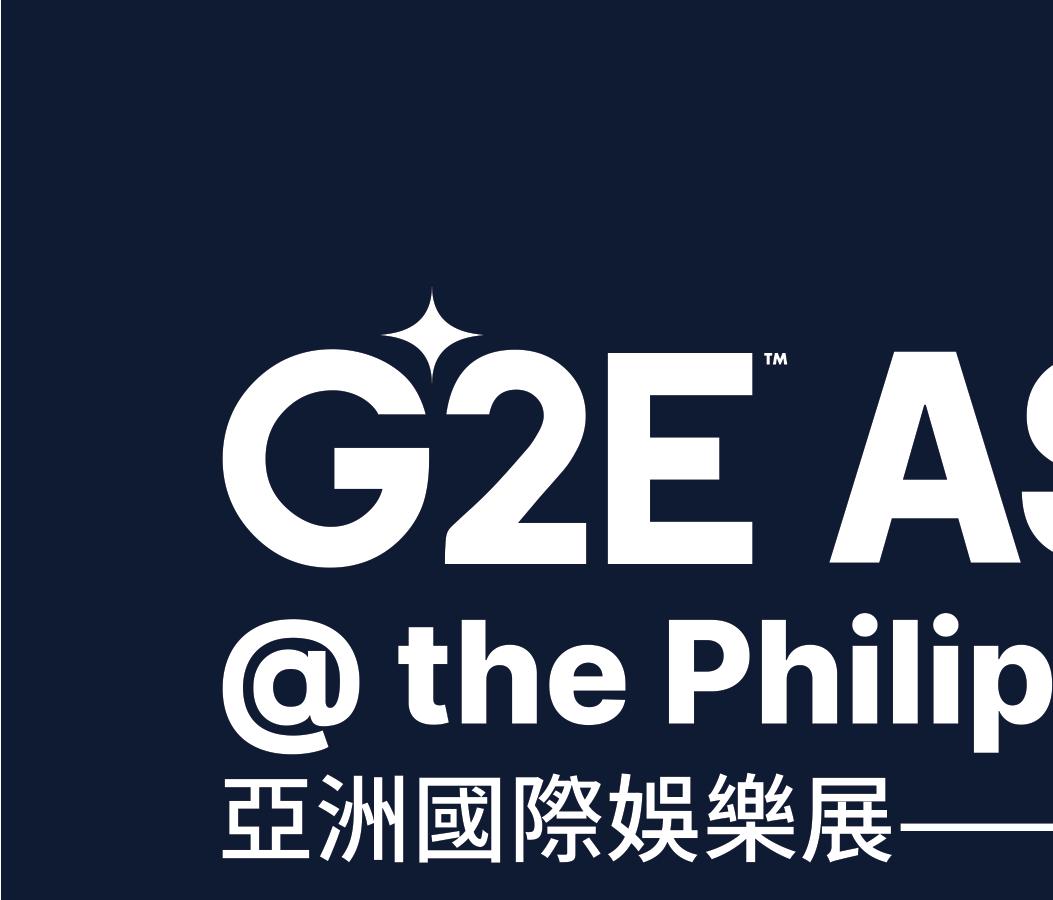






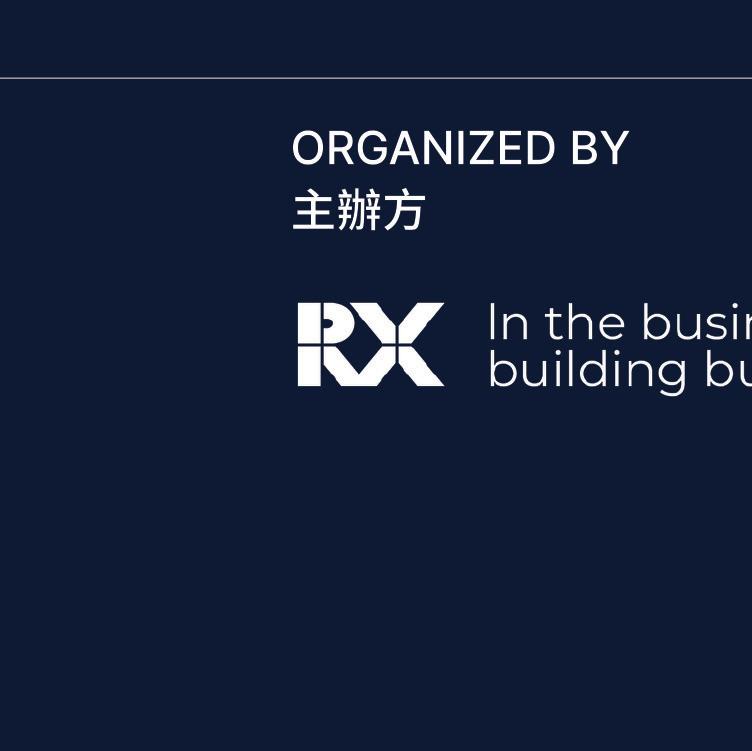



the UAE’s population are native Emiratis, with the majority of citizens being expats from South Asia, Egypt and the Philippines, as well as America, Europe and other locations. This is exacerbated by the nation’s growing tourism industry, which in 2023 accounted for 11% of the nation’s GDP as it welcomed over 28 million hotel guests across over 210,000 rooms.


When helping the lottery’s foundation, Woosley utilised his experience of helping start the Arkansas Lottery in 2009. “When you start, you have an assumption,” he says. “Then, players generally change that assumption fairly quickly, because it’s what they like that is going to dictate what we sell and how we market.” Only being a few months into its time in the UAE, Woosley and The UAE Lottery team are still learning about their players. Finding out what incentivises them to play, what they don’t like (“which is really nothing at this point,” Woosley commented) and when they are most active is still being understood. This last point in particular brought up the idea of seasonality, when players are more or less engaged with play due to things such as holidays and customs.


“I’m getting a hold of the culture [in the UAE] now,” he says. “Sometimes when it’s very hot, people go away, or they don’t go outside. Or, during holidays, they go back to the country they’re from. We’re trying to grab a hold of that and understand when people are buying. If a lot of the population has left the country, [we can] form our marketing around that and create a marketing campaign for the country that resonates but also is respectful of the culture. We’re learning and hopefully as we go, we’ll refine it and become UAE lottery experts.”

Overall, the UAE will present businesses with a unique yet lucrative, opportunity for expansion. It is likely we will see experimentation from operators in the early period as it gathers data on player behaviour, though alongside this, the market will also have to compete with one other in particular...
Of course, while all of this suggests a market with promise on the horizon, the UAE will have one major competitor to contend with when it opens its integrated resort(s): Macau.
For perspective, Macau’s legalised

gaming market was established around 130 years before the UAE was even officially unionised. For a brief summary of this history, Pedro Cortés, Managing Partner at Lektou, tells Gambling Insider: “Macau’s history as a gaming hub dates back to the late 1840s when the Portuguese Government legalised gambling to generate revenue following the first Opium War and the Hong Kong occupation by Great Britain. Over the years, Macau developed a reputation for its casinos and gambling culture. The real transformation began in 2002 when the Government of Mr. Edmund Ho, following the handover in 1999, decided to end the monopoly system and open the market to more operators.”
In the last 20 years, operators from across the globe have staked their claim in Macau, with operators including Wynn, Las Vegas Sands and MGM Resorts operating one or multiple properties. Local operators, including Melco Resorts, Galaxy Entertainment Group and SJM also operate in the region. As of 2019, there were a total of 41 casinos in Macau.

Already, the UAE and Macau share a similarity, with local and global operators flocking to a market to fuel growth and














































































































































































































































- p a c ific

LEAD PARTNER





















































































3 June Manila

EVENT SPONSORS





POWERED



















competition. Another shared trait between the two can be described as opulence: Consider the size, scale and grandeur of Macau’s casino hotels (and the money put behind their construction). This, naturally, drives tourism, though in the case of Macau, this tourism is known to largely be driven by mainland China – something that caused issues during and directly after the Covid-19 pandemic, as Cortés writes that an “over-reliance on gaming revenue made Macau vulnerable to economic fluctuations and policy changes in China.”



Moreover, while both benefit largely from tourism, the tourism brought to Macau is largely gaming-based. Consider that, in Q4 2024, MGM Resorts’ Las Vegas Strip properties made $2.22bn in revenue, of which $501m, or 22.6%, was reported in casino revenue ($822m, or 37%, came from room revenue in the same period). Compare this to MGM China, which of its $1.02bn revenue, $885m, or 86.8%, came from casino revenue.
“When you start, you have an assumption. Then, players generally change that assumption fairly quickly, because it’s what they like that is going to dictate what we sell and how we market”- Bishop Woosley, Director of Lottery Operations at The UAE Lottery







Diversity in non-gaming options has been a major talking point in Macau for some time, though “the success of these efforts has been mixed,” according to Cortés. “There has been growth in non-gaming sectors, with increased investment in entertainment, retail and hospitality. However, gaming still dominates Macau’s economy and the transition to a more diversified revenue base is ongoing.”
ongoing, Macau’s gaming market is not
But, even with diversification efforts ongoing, Macau’s gaming market is not easy competition. While the UAE’s gaming offering will likely cover a broader scope, potentially inspired by lessons learned from Macau’s gaming-centric market, Macau has established itself as a prime gaming location, with its history and casino offerings making it unlikely to simply bow out with a new player on the scene.













“The UAE’s development of a regulated online and land-based gaming industry could pose a threat to Macau’s dominance, as its strategic location and regulatory framework could attract international players and operators,” says Cortés, when assessing the UAE’s potential as a threat to Macau’s dominance. “Furthermore, the UAE’s focus on both land-based and online gaming could provide a more comprehensive gaming experience.”



















towards the former.
In Cortés’ view, “the advanced infrastructure and technology that can support a robust gaming industry, a well-regulated market that can attract reputable operators and ensure player protection and the UAE’s appeal as a luxury destination, which can draw high-spending tourists,” are factors that could give the UAE a competitive edge. As such, Macau will be required to continue its development of non-gaming options to draw in players – something the region has been attempting to implement in recent years. Although compared to other gaming destinations like Vegas, its split in revenue between gaming and non-gaming options swings wildly towards the former.









Another decisive factor, Cortés adds, is Macau’s “needs to continue introducing new gaming experiences and technologies and ensuring a fair and transparent regulatory environment to attract international operators.”


























For both Cortés and Woosley, Macau’s lack of an online gaming market marks a distinct gap in the region’s armour. While his experience specialises in lottery specifically, Woosley says: “Opportunities for online gaming exist here that do not exist there.” Cortés went further to produce a list of pros and cons for a regulated online gaming market in Macau (which “some years ago was


















a discreet part of public speeches. It seems such legalisation is not on the horizon”), where he notes “avoiding online gambling regulation helps maintain control over the gaming industry and prevents potential issues related to online fraud and addiction,” and that “it allows Macau to focus on its strength in land-based casinos, which are a significant tourist attraction.”

However, when it comes not regulated iGaming, Cortés’ list was slightly more extensive. “Macau misses out on potential revenue from the growing online gambling market,” he says and “other regions with regulated online gambling may attract a broader audience.” However, most notably, “the illegal online market will continue to be the only option for Macau residents and, despite the recent enacted law on unlawful gambling that criminalised the activity even if the servers are located outside Macau, the fact is that legalisation and regulation of the activity could, on the one hand, prevent the illegal market from growing. On the other hand, it could be another source of revenue, attracting online operators to the market.” Much like Woosley said earlier, “It’s better to regulate it than to try and control it constantly.” Though, the potential of a regulated iGaming sector in Macau is a much wider topic to explore in another issue.
However, it seems not all in the industry see one market as destined to cannibalise the other. When asked if the UAE was a threat to Macau’s dominance, Sackey says: “Not necessarily, as markets are added to the iGaming sector, we believe it increases opportunity for our customers and players. The growth indicates support and regulatory management of this exciting space in gaming.”

Moreover, in spite of the market’s potential, it does not guarantee that the UAE will come to overshadow its eastern neighbour. In Cortés’ view, Macau “will continue to be the largest gambling jurisdiction, with the attempt of the successive Governments to diversify the economy.” He cited the entry of global casino brands as bringing “significant capital, expertise and highquality facilities, with a robust tourism infrastructure, including luxury hotels, entertainment venues and shopping centres” to the area, which, given the region’s 2024 gross gaming revenue of MOP 226.8bn ($28.34bn), presents a hard act for the UAE to follow.

market is barely out of its infancy. The UAE Lottery has been operating for less than a year and, as of writing, Wynn Al Marjan has yet to open its doors. But, this does not mean the industry cannot speculate on what’s to come.
Woosley expects the market to grow quickly – much like the UAE itself. “If you have paid attention and have been very closely watching what is happening here, it’s like everything else in the UAE. It moves very fast, and is set up incredibly fast in a
well-done manner. We got a licence to operate lottery in June. We launched in November. That’s pretty fast. If you look at other jurisdictions in the US, that took almost two years to launch from the time they were created and awarded a licence.
“I would think for most of the verticals, especially those that are online, it’s going to happen even faster. It’s the intent of the GCGRA, and I won’t speak for them, to award operational licences to those



Everything said in this article is done so with an understanding that the UAE









that can get up and running as fast as possible. That probably includes all verticals. So you’re going to see a fairly expansive environment in the next five years.”
Of course, entering a new market also means making a good first impression. For Aristocrat, striving to “be the best partner to our customers and a worthy licensee within the UAE” is at the top of the supplier’s agenda. “We will be bringing our latest




hardware and games to the market to support the emerging market, and we will support the operators and regulator develop the framework allowing adoption of any new approved technology,” says Sackey.
Combine these two factors; a fast-paced yet well-regulated developing market, and companies ready to impress, and what we see is a market that, on paper,



will certainly turn heads. But the UAE does not exist in a bubble. The growth of the UAE will also likely impact the development of other Asian markets, from longstanding institutions like Macau to emerging markets in Thailand and Japan. In Cortés’ opinion, in five years, “the Asian gaming market is likely to be more diversified, with several key developments.” These include established gaming industries in the aforementioned emerging markets, the development of regulated online gaming and a “trend towards integrated resorts offering a mix of gaming and nongaming amenities.”
Indeed, “there is a lot of interest and excitement around the impact the UAE could have on the global market,” in Sackey’s view. “As the newest jurisdiction, these new entertainment options enhance an already attractive country.”
However, it would be wise to not put all your eggs in the UAE basket just yet. The nation’s first casino hotel is still in development, and alongside having to compete with any other casino hotels that come later down the line, they will also need to compete with the offerings of other iconic hotel destinations in the nation. Al Marjan Island, where Wynn is building its inaugural UAE property, is an hour’s drive from Dubai Airport, and two hours from Zayed International Airport in Abu Dhabi. Ifit wants guests to come, they need those willing to stay, using their time and potentially forgoing other tourist destinations.




When people think of Nevada, people think of Vegas. While tourists may also want to visit the Grand Canyon or Area 51, it does not quite have the same impact. With so many tourist destinations already available in the UAE, there may be concern that the different segments of the tourism industry will begin to compete with each other – beneficial to national GDP, but a challenge for individual industries.




Moreover, while the online industry offers diversity, online gaming is best targeted at locals, rather than tourists. Again, finding out the UAE’s online gaming player base and appealing to the needs of an international population will take time. But what will come of the industry is yet to be seen. While financial backing and an established operator run by industry veterans is a good sign, competition in Asia is rife, and there is no guarantee for success. While the odds do seem to be in the industry’s favour, it is, as they say, a gamble.

The online gaming industry is evolving at a rapid pace, making it increasingly di cult for operators to stand out. Rising player acquisition costs and fierce competition mean success isn’t just about having a platform – it’s about having the right platform. At Z-Gaming, we focus on delivering a powerful, cost-efficient solution that helps operators maximise player lifetime value while maintaining a strong return on investment.
Z-Gaming is designed for operators who want a high-performance solution without unnecessary overhead. Our platform delivers exceptional value through a suite of advanced features that drive engagement and retention. We know that long-term success depends on keeping players active, not just acquiring them, which is why we have built robust tools to make every marketing dollar count. Our CRM and automation tools enable operators to engage with players in real time, ensuring targeted promotions and incentives reach the right audience. The gami cation system, including a points & redeem mechanism, encourages loyalty, while cashback and rebates provide additional incentives for continued play. With access to six premium sportsbooks like IBC, BTI and SBO, as well as 90+ game providers covering slots, live casino and virtual sports, operators can o er a diverse and compelling experience.
At Z-Gaming, we are always thinking ahead. Innovation drives our success, and we are continuously researching and developing new features to help operators stay ahead of market trends. Our in-house development team is focused on improving player engagement, optimising marketing tools and enhancing operational efficiency. One of our key innovations is our in-session triggers, which allow operators to interact with players at precisely the right moments,
maximising retention and engagement. Additionally, we are currently running Proof of Concept (PoC) testing on AI-driven analytics to explore how predictive models can further re ne retention strategies. Our commitment to R&D also extends to tournament features, unique bonus mechanics and advanced open banking solutions, all designed to give operators even more ways to engage their audience.
Z-Gaming is built to excel in emerging and unregulated markets, particularly in Southeast Asia, Africa and Latin America. These regions o er huge growth potential but come with distinct challenges that require localised solutions. Our platform is designed to be highly flexible and scalable, ensuring operators can easily adapt to the unique demands of these markets.
We provide multiple payment integrations support, including local fiat and cryptocurrency payment options, making transactions seamless for players. Our referral system allows every player to
act as an affiliate or influencer, creating organic growth through network-based engagement. Additionally, our dedicated AWS environment offers reliable hosting, complete CMS and MongoDB access, and a quick-launch system that enables operators to go live in as little as 10 days.
As the gaming landscape continues to evolve, Z-Gaming remains committed to pushing boundaries and delivering cutting-edge solutions that help operators succeed. Our roadmap includes deeper integrations with third-party analytics, expanded CRM capabilities and reporting, new bonus mechanics, and enhanced jackpot and tournament functionalities and much more.
With a strong focus on cost efficiency, continuous innovation and adaptability to emerging markets, Z-Gaming is more than just a platform provider – we are a long-term partner for operators looking to grow sustainably.
We invite industry leaders to explore how we can work together to build the future of iGaming.

Redefining
in Asia: The rise of next-generation gaming.
By David Natroshvili, Spribe CEO
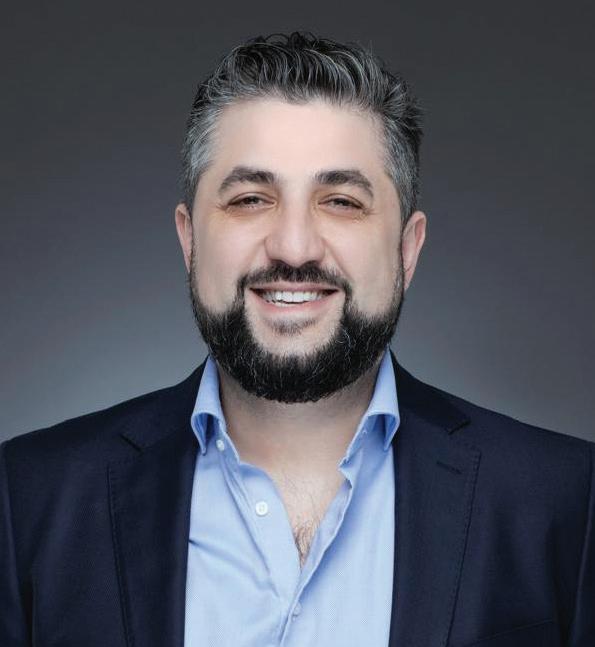
The Asian iGaming market is one of the fastest-growing and most competitive in the world, with evolving player preferences and a strong push towards mobile-first experiences. As gaming habits shift and technology advances, operators must adapt to remain competitive. At Spribe, we have seen rst-hand how next-generation games, social interaction and strategic partnerships are reshaping the industry.
Traditional slots have long dominated online casinos, but the landscape is changing. Today’s players, especially in Asia, crave more than just spinning reels – they seek engagement, interactivity and a sense of control over their gameplay. This shift has fuelled the rise of crash games and multiplayer experiences, which o er a more immersive and community-driven approach. The success of these games lies in their simplicity and high-engagement format . Unlike traditional casino games, where results are solely determined by algorithms, crash games allow players to make real-time decisions , fostering a sense of excitement and strategy. This active participation keeps players engaged longer and enhances retention rates for operators.
Asia is a mobile- rst market, where players demand seamless, fast-paced gaming experiences on their smartphones. This trend is particularly strong in markets like India, the Philippines and Thailand, where mobile penetration continues to rise.
For game developers and operators, this means optimising products for quick gameplay sessions, social interaction and seamless payment options. Our approach at Spribe focuses on mobile-first design, lightweight game mechanics and intuitive UX, ensuring our games run smoothly across all devices.
In the highly competitive Asian market, brand credibility and visibility are crucial. Strategic partnerships with major sports organisations, in uencers and entertainment brands have become a key driver of trust and engagement
We have seen this strategy play out successfully in global markets through collaborations with leading sports franchises , where in-game branding and digital activations create massive exposure. For operators in Asia, forming partnerships with regional influencers, sports teams and digital content creators can significantly boost engagement and player acquisition.
While Asia presents massive opportunities, regulation remains complex . Countries like India and Japan are gradually opening up to online gaming, while
others impose strict restrictions. However, what remains consistent across the region is the need for responsible gaming, secure payment processing and compliance with evolving regulatory landscapes . Operators that prioritise transparency, fair play and innovation will be wellpositioned to thrive. By working closely with regulators and adopting best practices, the industry can build a sustainable and trusted ecosystem that benefits both players and businesses.
As player preferences continue to evolve, the future of iGaming in Asia will be driven by social gaming, AI-driven personalisation and deeper engagement strategies. Operators and providers that embrace these trends will not only capture market share but also de ne the next era of gaming.

For businesses looking to scale in Asia, the key is clear: Understand the audience, leverage mobile-first innovation and build strategic partnerships. Those who take these steps will not only stay ahead of the competition but shape the future of iGaming in one of the most exciting regions in the world.
















































































































































A deep dive into the future of sports trading –A Q&A with Mike Forslund, Head of Odds88

As 2025 reaches Q3, the sports space is evolving rapidly. Where does Odds88 fit into this landscape? What makes Odds88 unique compared to other platforms? Odds88 isn’t just another platform –it’s a complete next-gen toolkit for operators. We seamlessly integrate mainstream sports with niche markets, such as local soccer and horseracing markets, all the way through to Japan’s Kyōtei boat racing. This level of flexibility allows operators to create unique, branded gaming experiences tailored to their audience.
How extensive is the sports coverage on Odds88?
In 2024 alone, we offered over 1.5 million sports fixtures across a limitless range of sports, averaging more than 4,000 daily events. Our curated markets include over 300 soccer options, 150 basketball options and 50+ tennis markets, alongside offerings in baseball, cricket and more. And we’re not stopping there – 2025 will see further expansion in sports, markets AND features.
What are some standout features that define Odds88’s innovation currently? I’d say there are five key features that set us apart from everything else on the market right now.
1. Customised Feed Integrations & Events –We offer multiple data and feed providers and in-house odds compilation, giving operators unmatched customisation options. We differentiate ourselves by handpicking local feed experts for niche markets as well as premium providers for bespoke sports such as cricket and racing. This is all strengthened by our partnerships with the global market leaders to synergise their offering and making our events offering unmatched.
2. BetRank: Intelligent Automation –Our BetRank algorithm evaluates bets in real-time, analysing multiple factors to determine their theoretical value. This helps operators make data-driven decisions effortlessly.
3. Advanced Risk Management – We prioritise security with risk management tools that detect unusual betting patterns and mitigate vulnerabilities, allowing businesses to focus on strategic growth. In addition, we’re beginning to experiment with AI driven algorithms. AI helps us with market pricing comparisons, statistical analytics, team and player centred news, injury updates, recent form and historical data.
4. Unmatched System Reliability –Our fallback system seamlessly transitions between data suppliers, ensuring a consistent user experience with maximal uptime.
5. Dynamic User Templates – Our customisable templates help operators align their offerings with evolving market trends, enhancing user satisfaction and profitability. We’ve perfected what we think is the default template designed to give best-in-practice control over your trading operations, while at the same time
offering each operator to set this up exactly as per their needs and wants with full trading customisation. In short, our partners are free to use defaults with everything perfected by our risk management or create unique templates designed for their needs.
Can you explain how BetRank enhances the operator experience? BetRank is a game-changer in automation. It eliminates manual oversight by analysing numerous factors to determine the theoretical value of each bet we take across the network. This empowers operators to manage player activity efficiently, offering greater control over their platform while reducing risks.
Risk management is crucial in this industry. How does Odds88 ensure a secure betting environment? Our risk management system is designed to be highly customisable, allowing operators to detect anomalies and manage exposure effectively. By proactively identifying unusual betting patterns, we help businesses maintain a secure and stable environment while focusing on long-term growth.
Customisation seems to be a major focus. How do your templates help operators tailor their offerings? O ur dynamic user templates allow operators to showcase their premium products while staying aligned with market trends. These customisable interfaces enhance user engagement and optimise profitability by giving operators the flexibility to meet customer needs in real time.
With your official launch in January 2025, what’s next for Odds88? Our goal is to make a profound impact on the sports trading landscape. We’re committed to continuous innovation, ensuring operators and players benefit from our technologydriven, user-centric approach. As the industry evolves, we’re leading the charge into a new era of sports trading.



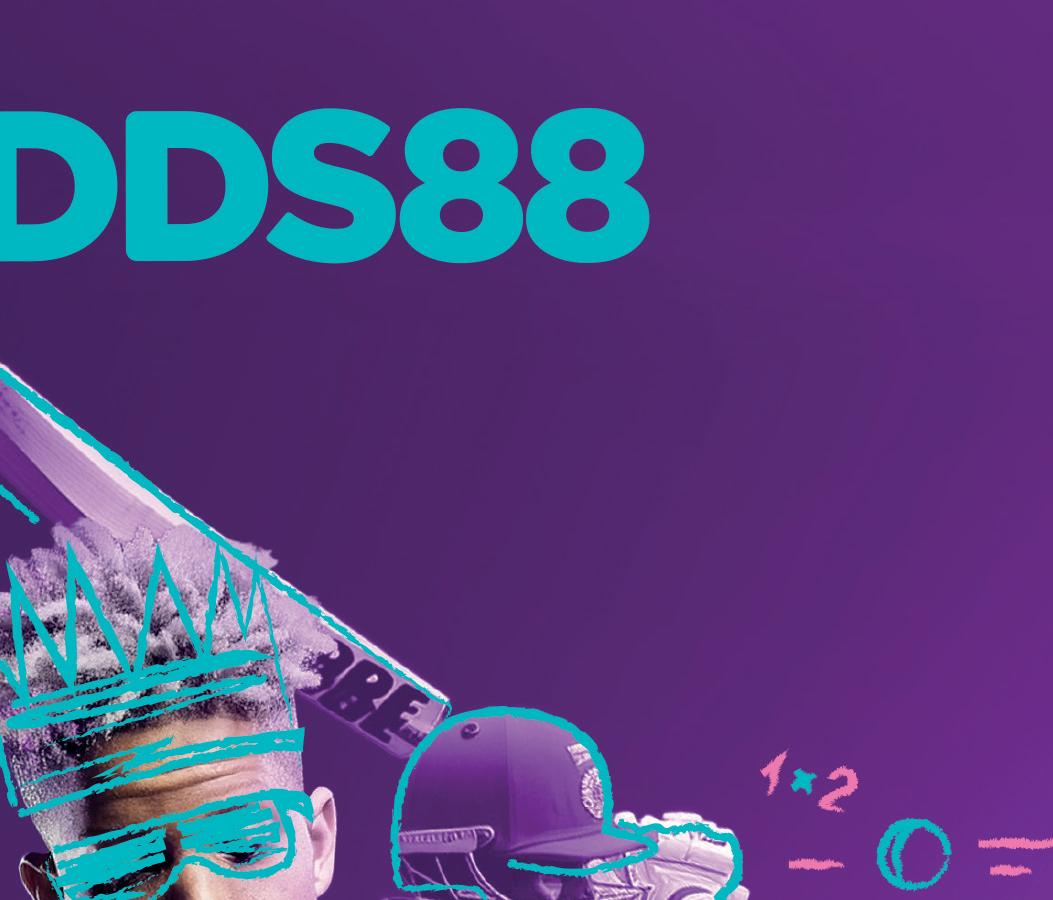


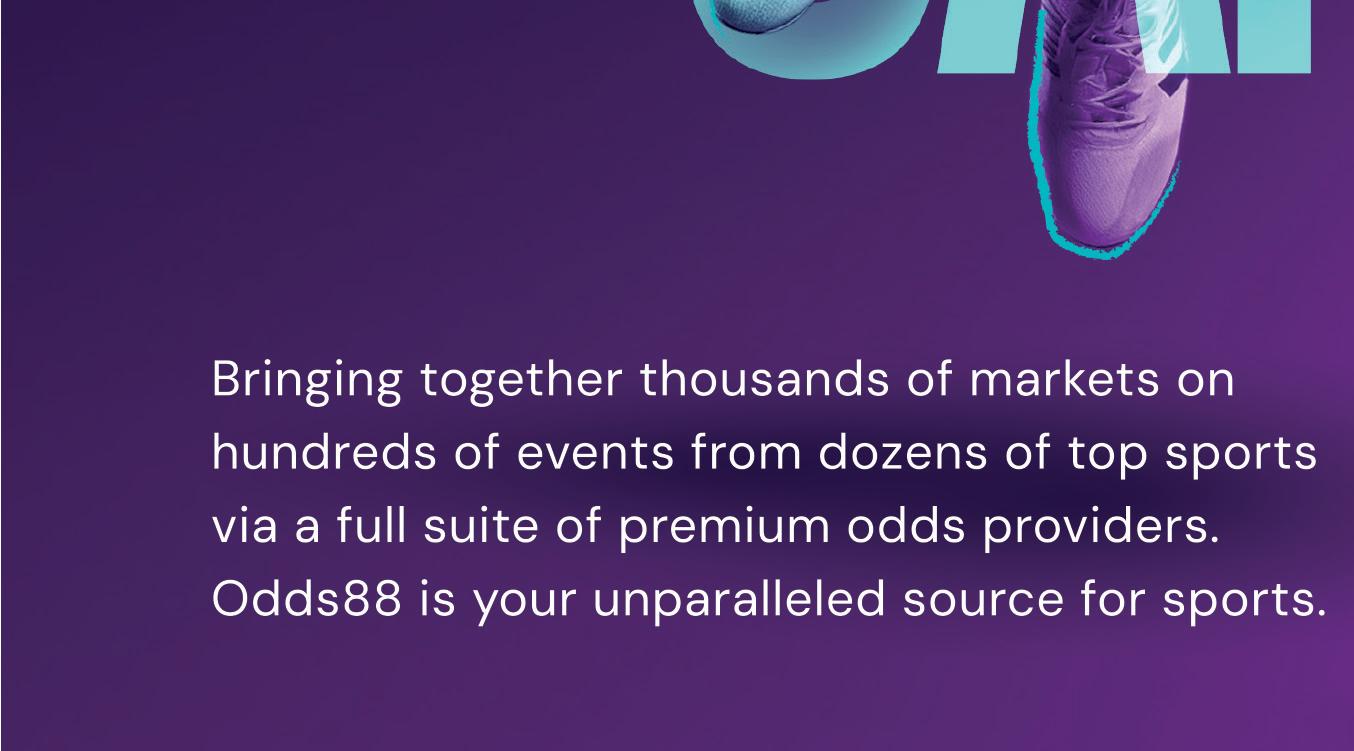






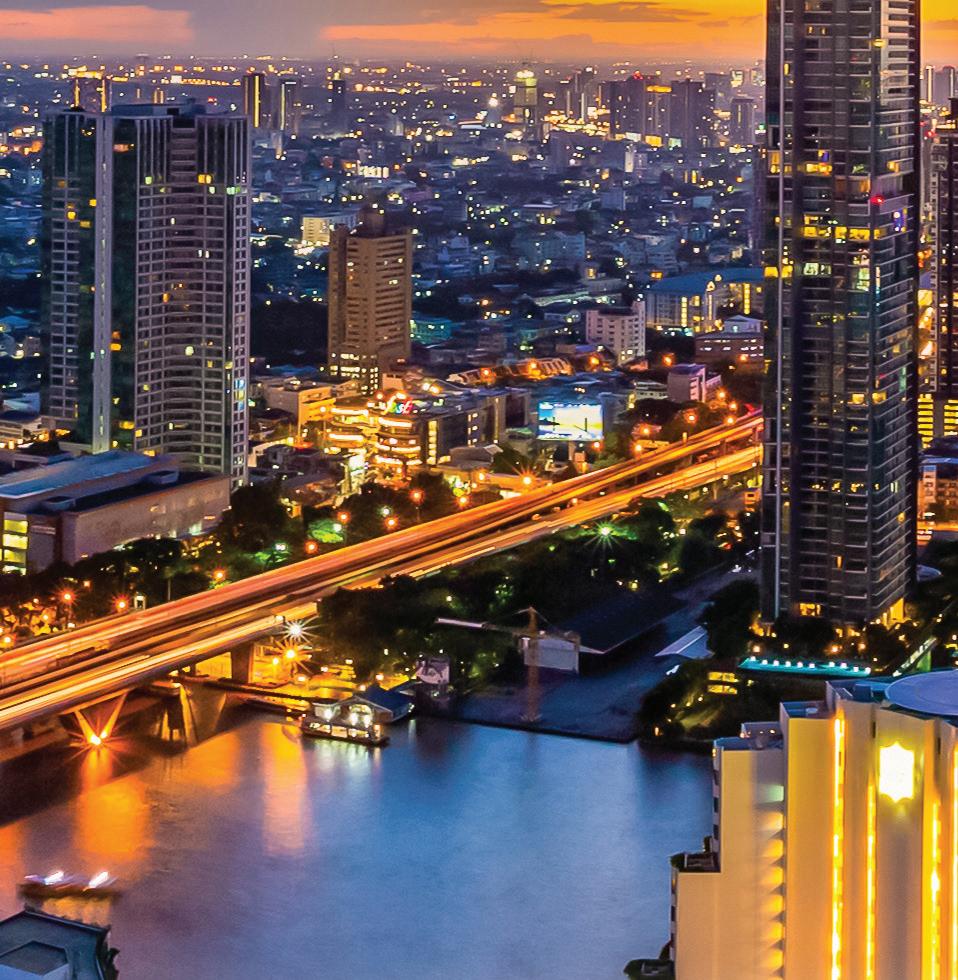

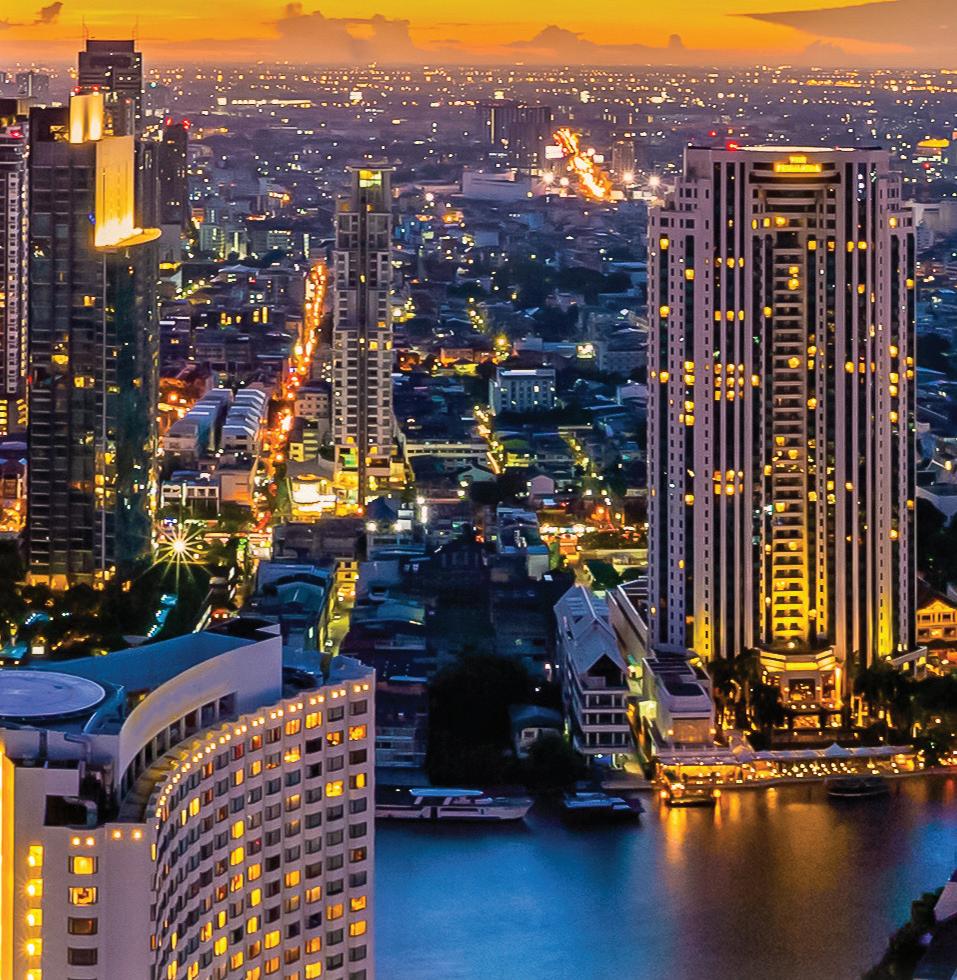



Capitalixe Co-Founder and CGO, Lissele Pratt, underlines everything operators need to know about Thailand’s casino and iGaming markets, which are progressing towards regulation
Thailand is finally opening its doors to legal gambling. On January 13 2025, the nation’s cabinet approved the draft Entertainment Complex Bill, setting the stage for regulated casinos in a market that has long been dominated by underground betting. This is a once-ina-lifetime opportunity, but also a highstakes challenge for operators.
Legalisation does not guarantee success. Thailand’s unregulated gambling market is massive and yields between 2 to 4 million gamers. It is well documented that Thais already gamble online, moving an estimated THB 500bn ($14.8bn) annually. Therefore, offshore operators
have spent years building customer loyalty and, if Thailand’s legal market can’t match that experience, players won’t switch.
The Government is banking on a 17% tax on gambling revenue to generate up to THB 100bn in tax income. However, taxation alone doesn’t make a market work. For this industry to thrive, Thailand needs strict regulation enforcement, frictionless payments and a strong banking infrastructure. Without these, operators will face the same pitfalls that turned Cambodia’s casino industry into a financial crime hotspot.
This article will explore the critical
factors shaping Thailand’s gambling future and how operators can leverage them for success.
Robust nancial oversight is a must for operators looking to enter Thailand’s newly legal gambling market. Once gambling goes live, the risk of nancial crime will almost certainly increase. If operators don’t take this seriously, they could end up like Cambodia, which is currently grey listed by the Financial Action Task Force (FATF) and currently undergoing a four-year process of intense

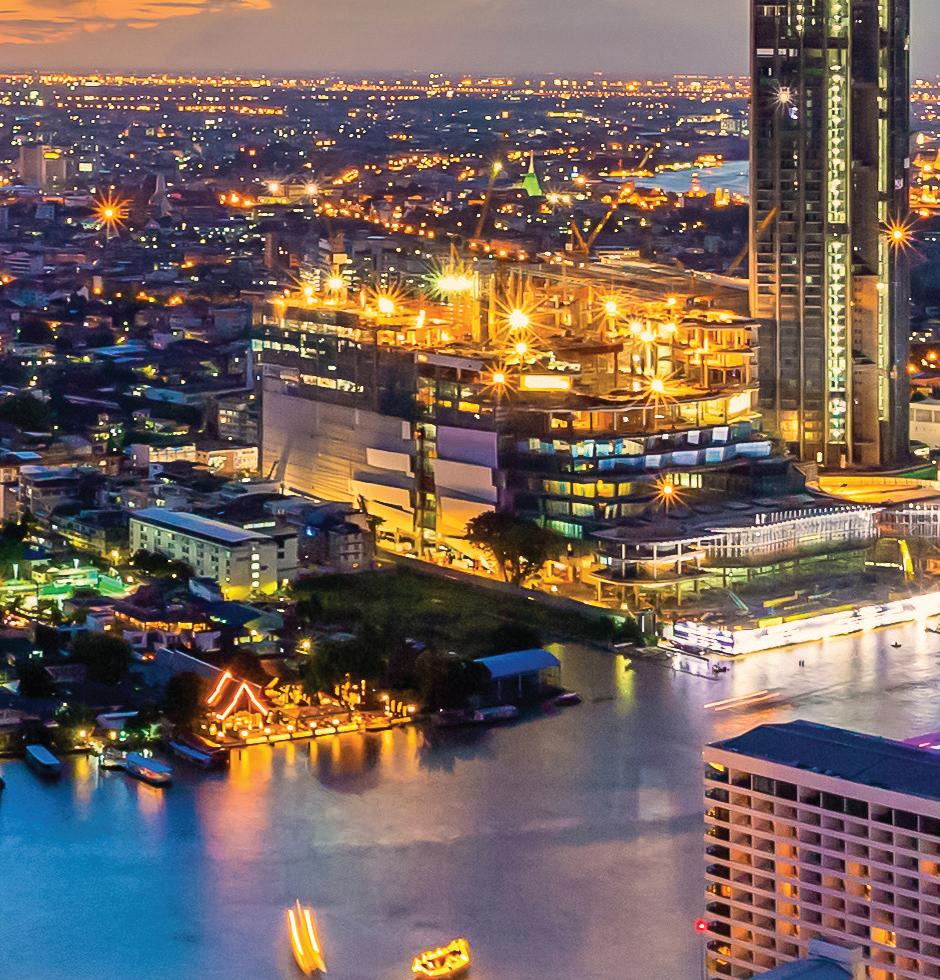
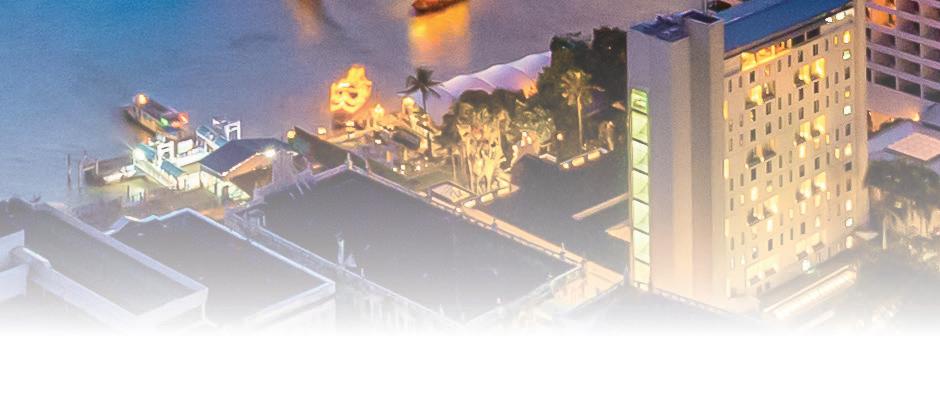
reform to get removed. Thailand cannot a ord to make the same mistake.
Now, Thailand already has AML laws in place, but gambling adds a whole new layer of complexity. Operators need to be prepared for tighter anti-money laundering rules. Initially, Thailand suggested a THB 50m deposit for locals to enter casinos, which would have severely limited the market. Thankfully, that idea was scrapped. However, operators need to be prepared for robust Know Your Customer (KYC) systems, potentially including biometric ID checks and tax ID verifications, similar to the advanced identity verification systems used in countries like Singapore.
As for online gambling, Thailand is moving toward regulation. If operators don’t join the legal market, they’ll lose players to unregulated offshore sites, costing Thailand billions. What’s more, 2024 saw the Philippines provide the perfect example of what can happen when a nation allows its illegal offshore gambling operators to proliferate. This is an issue Thailand will surely want to avoid; therefore, a solid cybersecurity framework and transaction monitoring will be key here to gaining government and player trust.
Thailand’s population is around 71 million, over 77% of which whom active internet users. That’s a massive audience that is used to fast, easy digital payments. They shop online. They send money with a few taps. They don’t think twice about how it works; it just does.
Now, imagine one of those people wants to place a bet. They open an offshore gambling site. They deposit money instantly with their favourite payment method. No hassle. No delays. If Thailand’s legal market can’t match this convenience, players will be hesitant to switch. For Thai players, this means integrating local payment methods like PromptPay and TrueMone – tools already trusted by locals. International players will expect their preferred payment options to be available, too. This can include cryptocurrencies, which are gaining popularity in the gaming world.
Despite this, convenience isn’t enough. Payments must also be secure. Fraud detection must be real time and transactions protected. By prioritising seamless payment experiences, operators can build trust with their customers and maintain a competitive edge in Thailand’s regulated market.
As Thailand moves forward with legalising casinos, the Government is setting clear guidelines to ensure responsible gambling. Operators need to pay attention to these new rules.
Thai nationals will need to provide proof of tax filings for the past three years to gain entry to casinos. Additionally, there will be a THB 5,000 – around $150 – entry fee for local players, an amount that’s significant in a country where income levels are considerably lower than in many Western nations. This is all part of the effort to ensure gambling isn’t easily accessible to everyone, but rather those who can afford it.
While the law sets the framework, operators must stay ahead of the curve by implementing their own measures to ensure responsible gambling. Fintech solutions have proven to be very successful in other countries. For instance, The UK requires operators to continuously monitor player behaviour to detect risky patterns. AI systems are used to identify potential problem gamblers and intervene almost instantly.
Responsible gambling is all about building a system where players feel
“Online players don’t think twice about how it works; it just does”
safe and secure, and where the integrity of the market is upheld. Operators who take these steps will be well-positioned to succeed in Thailand’s evolving gambling landscape.
Thailand is legalising gambling and the upwards potential of the market is huge, but that doesn’t mean success will come easily. Operators need to be focusing on nancial oversight, seamless payments and responsible gambling. Without strict nancial controls, the industry could collapse under crime and corruption. If payments aren’t fast and easy, players will stick with o shore sites. If responsible gambling isn’t taken seriously, the Government will tighten restrictions and public trust will disappear. This is a huge opportunity, but only for those who get it right. Gambling in Thailand will be a high-stakes game. Make sure you’re playing to win.
Lissele

Betby’s Asia Regional Director, Jason Hsieh, explains why esports betting in Asia demands a local approach
Asia is the beating heart of global esports. From the neon-lit gaming cafes of Seoul to the bustling mobile gaming hubs of Southeast Asia, competitive gaming has transcended being just a pastime and became a cultural and economic force. With millions of dedicated fans, tournaments filling stadiums and a rapidly growing betting ecosystem, esports in Asia is a phenomenon unlike anywhere else in the world.
Yet, despite its undeniable dimension, the betting landscape remains highly fragmented. Unlike traditional sports, where global leagues usually dominate, esports in Asia are shaped by regional nuances since the most popular games, betting preferences, and regulatory frameworks vary greatly from country to country.
For operators looking to tap into the region’s markets, understanding these differences is not only an advantage but a necessity. What works in South Korea won’t necessarily succeed in India and a strategy tailored for China might completely miss the mark in Southeast Asia. A deep, localised approach is required to navigate the intricacies of this dynamic industry.
GAME PREFERENCES
Understanding which games dominate in each country is crucial for offering the right betting markets. Esports is not a homogeneous industry and different regions have different preferences when it comes to their favourite titles.
In South Korea, StarCraft II and League of Legends remain the stronghold of esports, with the LCK (League of Legends Champions Korea) being one of the most prestigious leagues globally. However, games like Valorant are also gaining traction among the Korean audience.
Meanwhile, India and Southeast Asia are mainly dominated by mobile esports. PUBG Mobile (known as BGMI in India), Free Fire and Mobile Legends have built enormous competitive ecosystems, drawing millions of viewers and bettors alike.
Japan, on the other hand, has a unique esports culture where fighting games like Street Fighter and Tekken have a strong presence, alongside an emerging scene for titles like Apex Legends and Valorant.
At Betby, apart from our expertise and experience in providing esports solutions for countries like India through our esports feed, Betby Games, our in-house trading team allows us to quickly adapt and create under-explored markets catered to our partners’ localised preferences even for lower-tier events. Besides that, we offer three times more outright options than the market average and a unique range of player-specific markets for esports, ensuring operators differentiate themselves by delivering exclusive betting opportunities to users.
Beyond game preferences, the way esports is consumed and bet upon also varies greatly across Asia. While some markets still favour traditional PC and console setups, others have fully embraced mobile gaming.
China and South Korea remain PC-dominant markets, with games like League of Legends, Dota 2, and StarCraft historically being played in internet cafes and high-end gaming setups. This preference extends to betting, with most wagers placed through PC platforms.
By contrast, India and Southeast Asia (Vietnam, Thailand, Indon esia and the Philippines) have seen a mobile gaming revolution. Titles like Mobile Legends, PUBG Mobile and Free Fire dominate the esports landscape, with the majority of players and bettors using smartphones to engage with esports content.
For operators, this means it is crucial to have a seamless, low-latency, mobile-first approach in some markets, while ensuring a high-quality desktop experience where PC gaming remains dominant. Betby’s proprietary esports feed,
Betby Games, is optimised for all platforms, providing a reliable and engaging experience regardless of device preference.
Another challenge when navigating esports betting in Asia is the vastly different regulatory landscapes in the region.
For example, while in Australia – part of the Asia-Pacific Region – esports betting is partially regulated and widely available because it is permitted by the Northern Territory Racing and Wagering Commission. India, on the other hand, presents a fragmented picture. Until 2023, online betting was legal in states like Goa and banned in others such as Maharashtra, meaning that operators had to navigate a complex web of state-level regulations. However, a new federal law ruled sports betting as prohibited in all 27 states and eight union territories, except for Sikkim, which has a local licencing system but leaves esports in a grey area.
Meanwhile, South Korea, one of the birthplaces of professional esports, only allows wagers in selected sports through a government-backed system, with esports remaining in the black market.
Aware of the challenges different regulatory frameworks pose, Betby has secured certification from Gaming Laboratories International (GLI), the most accepted licensing laboratory globally, ensuring we meet the highest compliance standards in the industry. This attests our capacity to easily navigate and adapt to different regulatory structures, paving the way for expansion in Asian markets.
“With millions of dedicated fans, tournaments filling stadiums and a rapidly growing betting ecosystem, esports in Asia is a phenomenon unlike anywhere else in the world”

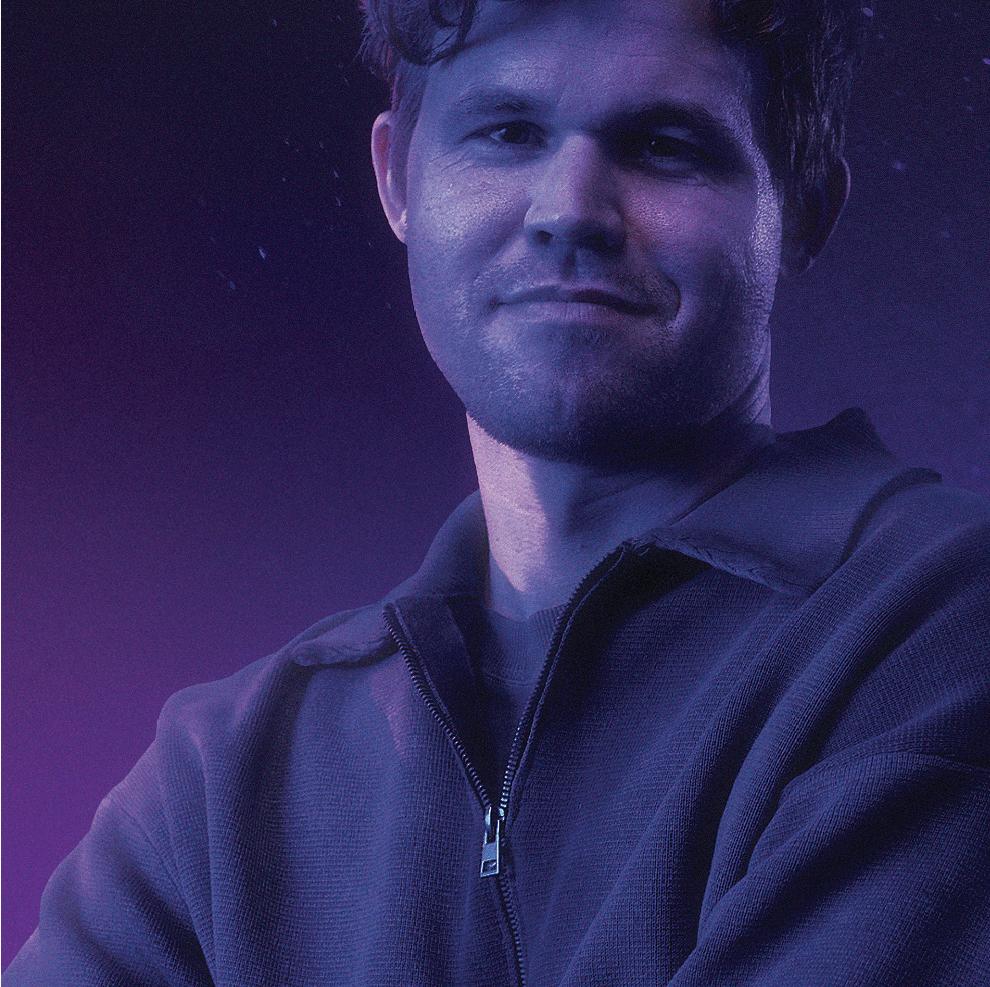


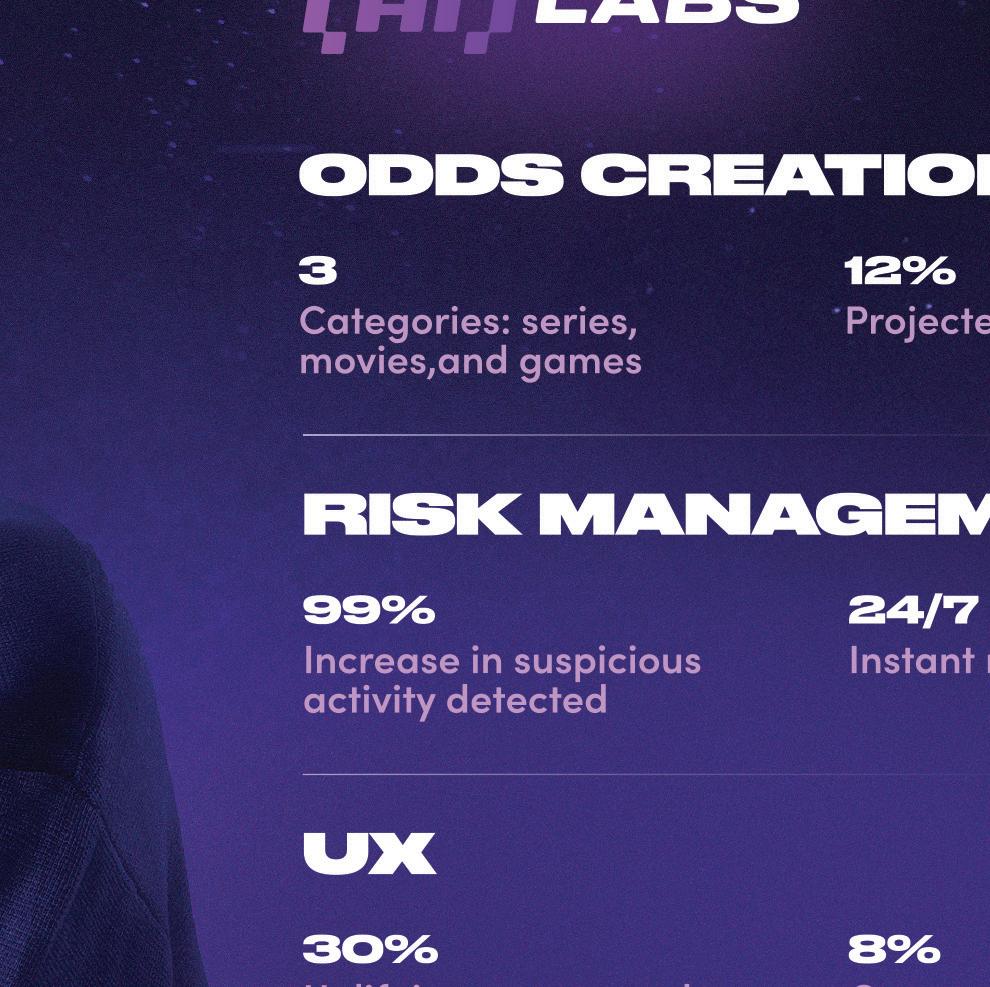





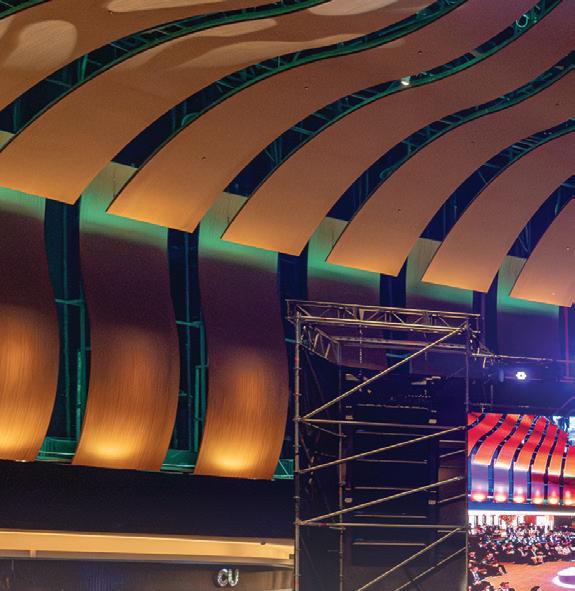
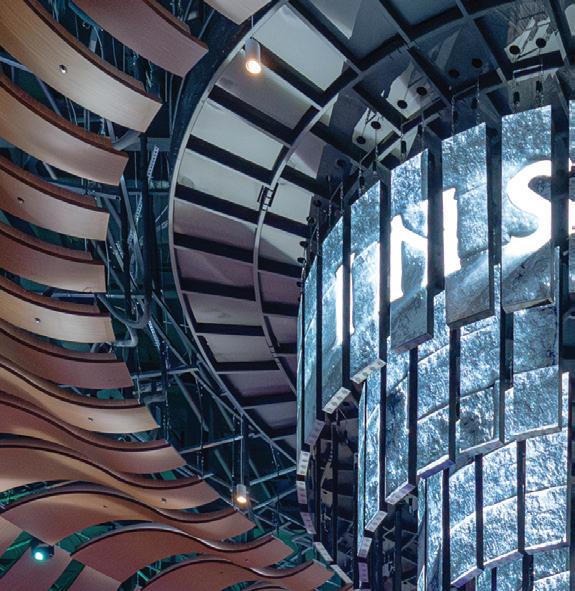
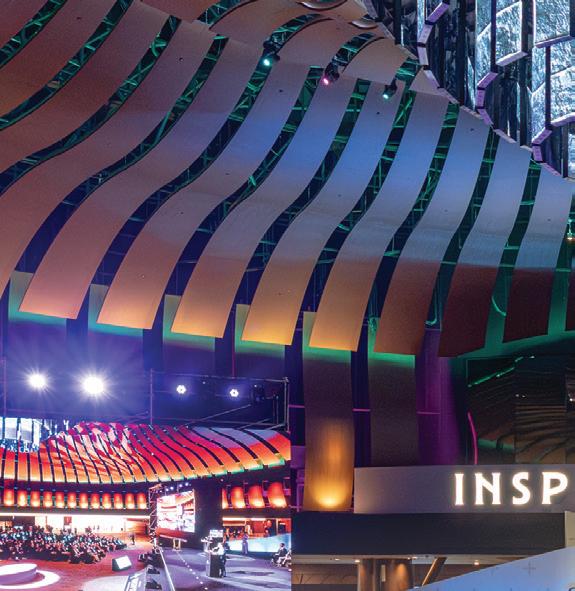


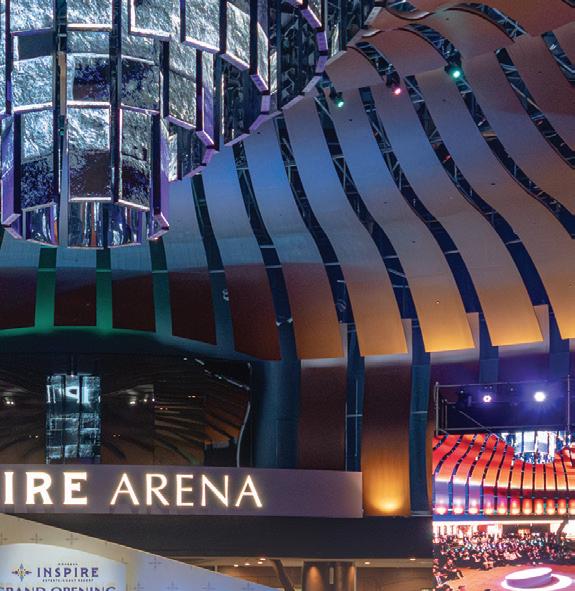




Gambling Insider’s Megan Elswyth investigates Bain Capital’s takeover of Mohegan’s Inspire Resort in South Korea
To inspire means to give others ideas and push them to action. First used during the Middle English period between 1150-1500, the verb actually originates from the French word ‘enspiren,’ which means to ll the mind and heart and prompt someone to begin an endeavour; looking back even further, the Latin ‘inspirare’ means to blow life into something – so, perhaps it was only tting that on 17 February 2025, after only a year of the resort being open, Bain Capital was motivated to accelerate Mohegan’s debts and acquire operational control of Inspire Entertainment Resort.
The move came as quite a shock to both the wider industry and Mohegan itself, if its Q1 conference call is anything to go by: “Following the earnings release this morning and just a few hours ago, we received notice from the agent for the lenders to MGE Korea Ltd…” But we might be getting a little ahead of ourselves. To understand why Bain
Capital was inspired to take control of the resort, perhaps it’s necessary to take a closer look at the first year of operations and how a four-year construction project was only opened around a decade later.
With three hotel towers housing 1,275 rooms, a 15,000-seat arena and even an indoor water park, Inspire Entertainment certainly made a splash when it opened in Incheon, South Korea. But were there clues all along that Mohegan was diving into the deep end when it came to this venture?
Clues 1 & 2: A plate of barbeque pork and all is not well next to Paradise By 2015, South Korea had 17 casinos operating in the country, but only one was open to Korean citizens, while the rest operated on a strictly foreign-playeronly basis. Although attitudes around gambling were still more conservative
than those in the West, the South Korean Government opened up the chance to build another gambling resort and received 34 bids for the opportunity. However, just as momentum was building, several of these companies suddenly retracted their offers. Bloomberry Resorts had bought several islands around Incheon Airport as part of its tender, but, along with Genting Singapore, both operators decided their time, energy and budget would be better spent elsewhere in Asia. This didn’t deter Mohegan, though, and on 26 February 2016, the tribal operator was announced as the winner: “We are pleased with the Korean Government’s decision to award us the opportunity to help fulfil their vision of driving economic development by growing tourism, creating jobs and showcasing Korean culture via the integrated resort,” said the Mohegan President at the time, Bobby Soper. As part
of the deal, Mohegan would be required to invest at least a trillion Korean Won (US$811.3m), but the team was confident that its $1.24bn project would be ready to open by 2020.
Mohegan wasn’t the only US operator planning a major construction project in the country, though. A joint venture between Caesars and Lippo had already been approved by South Korea in 2014, but during an investors conference call in February 2021, the company dropped a bombshell. “Korea has gone, we sold it for some barbecue pork, ” Tom Reeg, Caesars Entertainment CEO told listeners. “We sold it back to our partners and have no more commitment. We’re out.” Aside from Mohegan, the only other company which seemed all-in on opening a resort in Korea was Sega Sammy, the company best known for Sonic the Hedgehog. Much like the blue protagonist himself, the executives at Sega Sammy moved quickly to open the country’s first integrated resort in 2017 – which was also located just a few minutes from Incheon International Airport. There would be enough traffic through Korea’s biggest airport to sustain two casinoorientated resorts, right?
Clues 3 & 4: Heavy investments; a new CFO A year after the resort was projected to be operational, on 29 November 2021, Mohegan announced that it was 12% through the construction process and had finally closed $1.6bn in funding for the remainder of the project. This comprised of $300m from MGE, $275m from Bain Capital and MBK Partners, $890m from KB Securities, NH Investment & Securities and Hana Financial Investment and $85.5m from Hanwha Engineering & Construction Corp. This may seem normal in the West, but according to internal reports, even if an
operator had a flawless record of gaming operations, a business licence could be refused to them if they “heavily relied on debt.” Construction is never cheap, but the Korean Government is very particular when it comes to foreign investors taking out loans as part of their business practice.
With such a hefty investment under Mohegan’s belt, let’s take a look at how Sega Sammy was doing. The Japanesebacked resort was going to be the direct competition for Mohegan Inspire and, despite initially promising results, the global pandemic had taken its toll on the resort. In 2021, between Paradise City in Incheon, Korea and Phoenix Seagaia Resort in Miyazaki, Japan, Sega Sammy’s net sales had fallen 39.7% to ¥6.32bn ($57.7m), while Paradise was operating at a ¥10.3bn loss. The company has since made a solid recovery and Paradise is now operating at an 84.6% hotel occupancy rate with 267,000 casino visitors and ₩ 45.4bn ($0.031bn) in net profit in its latest quarterly reports. But the potential success for integrated Korean resorts was still uncertain several years ago.
There was one final major development that unfolded before Mohegan could officially open Inspire Entertainment Resort. Carol Kline Anderson, Mohegan’s CFO since 2021, notified the company in October 2023 that she would not be renewing her employment contract on 31 March 2024. With almost two decades of experience in the industry, Anderson had served as VP for Lehman Brothers, an Associate for Latham & Watkins, the SVP of Treasury for Capital Markets and Associate General Counsel for Scientific Games. Ari Glazer was chosen as her successor, and he would officially start as Mohegan’s CFO on 1 May 2024, a few months before Inspire would open.
Clues 5 and 6: K-Popping the bubble and when did the casino open?
When Inspire finally did open, the focus was never on the casino. In fact, these facilities were the last to open – just over two months after the soft launch that saw the hotel, arena and MICE areas open. With the soft launch on 30 November, Mohegan wasted no time in scheduling the first event at Inspire for 2 December, a K-Pop Music Awards ceremony. This featured the likes of BTS and NewJeans, while the first month saw other acts such as Taemin, SHINee, Stray Kids and Enhyphen all perform at the new arena. Despite the star-studded inauguration, the audience was not impressed. The audio mixing was apparently so bad people couldn’t hear the singers during performances, bands were introduced with incorrect names and there were several cases of another band’s song starting midway through a performance. There are always teething problems with new locations, sure, but there were also concerns about whether Mohegan had bitten off more than it could chew. What does this have to do with gambling? Just bear with me for a moment longer. K-Pop is a multi-trillion won industry and is the pride and joy of the country. In fact, this is one of the main factors Korean Government officials would look at when granting a business licence. Korean pop culture is one of the biggest drivers for the economy and, in a recent report by Lee et al named ‘Integrated Casino Resort Development in South Korea: Perspectives from the Government Representatives and Industry Professionals,’ it was confirmed that “satisfying all the bidding requirements is necessary but does not seem to be sufficient to obtain a business
FEB 2016
Mohegan wins bid to build casino resort in South Korea, set to open 2020
FEB 2022
Mohegan secures funding for construction, set to open 2023
FEB 2024
Inspire Casino opens
FEB 2025
Bain Capital acquires operational control of Inspire
licence in Korea. It is equally important to understand the unique political, social and cultural knowledge of the host country to enter the gaming market in Korea.” If Inspire Arena was mishandling performances, Mohegan may have been getting off very much on the wrong foot. Had the operator gambled on making a good impression through the music industry and not quite hit the right note?
But the show must go on, as they say. On 5 March, the official Grand Opening took place, featuring performers such as PSY, Taeyang and Maroon 5 at the Inspire Arena. You might be mistaken by the ‘opening’ sentiment of the ‘Grand Opening’ title, though; by this time, Inspire Casino had already been operating for over a month. That’s right, the casino part of the resort had quietly opened on 3 February to no fanfare. If the proverbial spotlight was focused on Inspire Arena, Inspire Casino wasn’t even on the stage – gambling operations were probably still at home wondering when it was their turn to debut. If you weren’t aware that the casino opened a month before the Grand Opening, don’t worry, you weren’t the only one. The casino reported only 10,771 visitors during February and a mass table drop of $31.1m, when compared to 15,803 visitors and $61.7m one month later after the Grand Opening in March.
Clues 7 & 8: Net loss growing and Korea’s tolerance for debt
On the topic of nancials, let’s discuss Mohegan’s reports. During the time of Bain Capital’s takeover, gures at Mohegan were looking steady – or stagnant,


depending on how you look at things. Since June 2024, Inspire Resort had plateaued at around $60m in revenue per quarter, which is the same number seen at both Mohegan’s Pennsylvania and Niagara resorts. Casino visitation numbers had also levelled out at around 31,000 each month, while hotel occupancy had been steadily on the decline from 89.7% in August to 66.7% in December. The main problem, as it often is with nancial reports, was in the net income – or in this case, the net loss. For the last year, Mohegan had been operating at a net loss, totalling $234.5m in FY24, with foreign loss documented as $346.2m, although this does include Niagara Resorts too. By comparison, the company’s net income in FY22 was $75.7m and in FY23 it had fallen to $22.9m, but foreign loss was $20.4m and $61.9m respectively. One of the few positives was mass table drop, which was increasing steadily during the last half of 2024, averaging around $85m per month and peaking at $117.5m in December. So, was there a problem with the location? Well, to deduce that, let’s take a look at the direct competition 4.2 miles down the road. In 2024, not only did Paradise City report positive growth in revenue and income, it also had its highest levels of casino and hotel activity since opening, “driven by continued strong casino sales centred on Japanese VIP customers.” If it wasn’t the location, then, what was the issue? As part of the report compiled by Lee et al, when interviewing Korean Government officials who had been part of the Incheon licence process for Paradise City, several said that one of the most important things was the “foreign investors financial status” and “an investor’s

debt ratio should not exceed 40%.” Officials also explained there were concerns that an operator could obtain a licence, rack up debt and then file for bankruptcy. This worry stemmed from several unsuccessful investment schemes in the past, many of which led to the nation’s financial crisis in 1997; as such, “the Government has tried to avoid any possible risks associated with working with foreign capital, particularly with national development projects such as the integrated casino resort.” Perhaps the most important assessment from this report is that “the Korean Government seemed to put more weight on the financial integrity and health of foreign investors and high ethical business standards.”
At the time of Bain Capital’s takeover, Mohegan had $3.2bn in assets and $3.1bn in long-term debt. While the specific loan to Bain Capital wasn’t due to mature until 2027 and there were no principal payments expected until then, there was $685.9m due to Korean credit facilities, which would mature later this year. It seemed that, with Mohegan’s long history of operating some of the biggest integrated resort casinos in the US, the operator was an easy choice for the Korean Government to make. Yet, despite strong financial backing and a vision, Mohegan may not have been a good fit for Korean culture. The operator understood gaming and hospitality, that much is clear from its operations in North America, but Korea demands something very different: A particular care for its culture and little reliance on debts that seemingly caught Mohegan unawares. It might’ve been a successful first year for the resort, just not in the eyes of the people whose judgment mattered most.








BetConstruct is a leading global iGaming technology provider delivering comprehensive solutions, turning bold ideas into proven standards and offering partners complete operational control. Backed by international certifications and licences, BetConstruct has demonstrated a localised approach which has secured the company’s strong presence in the Asian iGaming market.
Popular sports events are extensively covered by major iGaming companies, a task that can be challenging due to the varying preferences across regions. BetConstruct’s enhanced Sportsbook offers an impressive array of over 140,000 pre-match events and more than 70,000 live matches monthly to meet client demands, covering sport types that are popular in the Asian Market.
BetConstruct’s advanced Sportsbook also features crypto wallet integration and robust risk management tools, providing operators with the competitive edge they need in today’s market.
In the meantime, BetConstruct’s Data Feed Solutions let operators access fast, accurate and reliable sports data. Combined with the company’s Sportsbook, these solutions deliver the most precise sports data for sporting events globally.
Presenting its comprehensive Casino Suite, BetConstruct provides a diverse portfolio of 15,000+ casino games developed both in-house and by 250+ premium providers. The company’s Casino Suite operates on certified RNG technology, ensuring that operators can focus on growth while maintaining compliance and fairness.
BetConstruct’s approach to loyalty is not limited to players. The company values its partnerships above all, always seeking ways to strengthen collaborations. An example of this is The Last Battle Universe, the first B2B loyalty system in iGaming. It offers new partners up to 100% cashback on setup fees, enhancing the value of collaboration and fostering long-term relationships within the BetConstruct ecosystem.
By joining BetConstruct and activating The
Last Battle Universe B2B Loyalty System, partners gain access to exclusive benefits designed to maximise growth and player satisfaction.
One of the key challenges in the iGaming industry remains ensuring player engagement, retention and loyalty. To keep players motivated and involved, BetConstruct has designed innovative solutions including groundbreaking promotional tools such as: The Last Battle, Trebuchet and Bonus Pie. With customisable loyalty cards and levels, The Last Battle transforms traditional reward systems; it offers operators the freedom to brand and design loyalty levels and rewards. This intuitive, user-friendly platform facilitates player-to-player trading, creating a personalised and dynamic experience that encourages long-term loyalty and participation.
Trebuchet is a challenge-based promotional tool where participants complete structured activities with clear objectives, earning rewards after completion.
With the integration of NFTs into the Bonus Pie in-game marketplace, operators get familiarised with blockchain, where players can exchange their points for NFTs. All of these tools are key drivers of player engagement.
BetConstruct’s Affiliate Solution provides an opportunity for all iGaming companies with exclusive solutions to meet demanding preferences. An all-in-one solution, it includes both the software and a robust management system, supported by a vast affiliate network. It covers over 630 partners, 30 million players, and 600,000 affiliates . Now accessible via API, it integrates effortlessly with any iGaming platform.
With over 20 years of industry expertise, BetConstruct understands the value of tailored solutions in the dynamic world of


iGaming. The company’s advanced CRM tool is the ultimate solution for operators seeking intelligent, results-driven engagement. It offers advanced client segmentation through 300+ dynamic filters and their intersections, which ensures that each user receives a personalised experience based on the operator’s unique goals and preferences. IGaming businesses also benefit from automated marketing and analytics capabilities, supported by a flexible suite of tools. This empowers operators to launch real-time, data-driven marketing campaigns that adapt effortlessly to evolving market demands while aligning with strategic business objectives. The value of seamless communication is as crucial as designed solutions, considering this CRM integrates third-party messaging providers
Tying together all of the company’s offerings, BetConstruct’s SpringBME provides access to over 30 products, 45 services, and 200 third-party content providers . It allows operators to activate and manage a full suite of products, services, and tools through a single, streamlined interface. From in-house software to third-party integrations and comprehensive management resources, everything is accessible via one powerful console.
With its unwavering commitment to innovation, regional adaptability and comprehensive support, BetConstruct continues to redefine the iGaming landscape by empowering operators across Asia to achieve sustainable growth and lasting success.






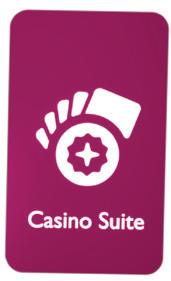




























With the future of The Star Entertainment Group hanging in the balance, Gambling Insider’s Megan Elswyth investigates the company’s history and how The Bell Review – initiated by the NSW Independent Casino Commission – will decide the operator’s future
All gures are in Australian dollars
AU$1 = US$0.63 approx at the of writing
STELLAR NEBULA (1993-2012)
FY2011
Revenue: $1.65bn
Net pro t: $226m
FY2012
Revenue: $1.62bn
Net pro t: $42.2m
The birth of this star can be traced all the way back to 15 June 1993, when the property known as Sydney Skyline Casino was first approved to be built. Only one year later, in a move steeped in foreshadowing, the Leighton Group was removed as project shareholders due to issuing false paperwork to authorities. On 26 November 1997, Star City Casino would o cially open. A few years later, Tabcorp would acquire the casino and act as its operator until the demerger in June 2011 that saw Echo Entertainment Group



splitting away from Tabcorp – taking Star City Casino with it.
“We are excited to see the realisation of one of the most significant tourism investment programs in Australia today,” the Echo Entertainment 2011 Annual Report said, before boasting how the VIP experience would still include “private jet transportation to the most opulent private suites and gaming salons,” while still championing responsible gambling for all. In fact, The Star first piloted



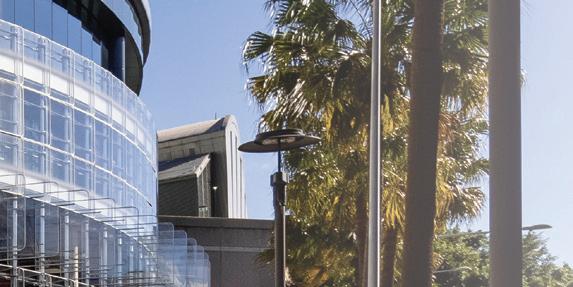







Responsible Gambling Awareness Week early on in 2004 to raise awareness – and continued to champion the event each year, at least for a while.
FY2013
Revenue: $1.74bn
Net pro t: $83.5m
FY2016
Revenue: $2.36bn
Net pro t: $194.4m
If responsible gambling was part of this star’s core, it seemed to burn up pretty quickly as the entity expanded into one of Australia’s gambling behemoths. According to The Bell Review, an investigation by the NSW Independent Casino Commission into The Star unveiled criminal activity that can be reliably traced back as far as 2013. The use of China Union Pay (CUP) debit cards quickly began to snowball into much larger issues but, at this point, they
were merely used to circumvent Chinese capital flight laws and get patrons into the casino who otherwise wouldn’t be able to gamble. The method was rather simple: A hotel package at The Star would cost $50,000, which was a $1,000 hotel room and $49,000 reimbursed into the patron’s casino account. When banks and institutions asked The Star if CUP cards were being used for gambling, the responses from the management team were “false, misleading and unethical,” as quoted in the Review. No sources of wealth were conducted on players who gained access via CUP cards. This was also true in the case of an individual player whose total wagering turnover exceeded $2.25bn and lost $57.4m while gambling at The Star. Some customers chose to deposit cash in Macau banks and pick up the chips at the Australian casino, which the banks would list as transactions from “A Star to The Star.” Records would later find that HKD$1.2bn (AU$200m) was moved in cash this way. 2016 would be the year when the operator finally rebranded to The Star, junkets were first flagged as a potential issue at the property and Tom “Mr. Chinatown” Zhou would be placed on the exclusion list. Not everyone made it onto this elusive list, though. One case study found that Matt, who was 15 years old at the time and had multiple sclerosis and cognitive impairment with problemsolving, would still be allowed entry despite technically being barred in 2016. When The Star introduced facial recognition technology to flag people on the exclusion list, the company was asked whether it would introduce carded play, which was more reliable in safeguarding customers who were at risk. The Star simply replied that it was not interested.
FY2017
Revenue:$2.43bn
Net pro t: $264.4m
FY2018
Revenue: $2.58bn
Pro t: $148.1m
By 2018, The Star claimed that it was still #1 on the Dow Jones Sustainability Index but, for the first time, the annual reports made no mention of the Responsible Gambling weeks the company had been proud of hosting since 2004. By 2021, the
Responsible Gambling sections in the Annual Reports were barely even included. But in 2017, 2018 and 2019, the Iek junket was turning over approximately $1.29bn, $2.29bn and $1.27bn respectively at The Star by way of non-negotiable chips...
Junkets would become a key failure for The Star. Examining the case of Suncity, who by September 2017 was The Star’s largest junket customer, churns up additional, flagrantly obvious issues. Suncity had its own room within the casino, called Salon 95, which was adorned with branded ashtrays, tables, pens etc. The room even had its own service desk –although there was an argument about this. The Authorities described it as a service desk, while The Star claimed it was a desk that, sometimes, had cash and chips placed on it, but never for transactional purposes! Unfortunately, we may never know the full extent of how the cash was exchanged in Salon 95, because the junkets knew where the CCTV blind spots were. Filing cabinets, suitcases and even business transactions were conducted in these compliance black holes, but the cameras did catch at least 100,000 being exchanged for plaques and “boxes” of cash coming and going from the room. There was also the issue of a bright red suitcase changing hands, but that’s a story for another day.
In 2018, the Hong Kong Jockey Club (HKJC) created a report linking the recent Bangladesh Bank cyber heist to Salon 95. Out of the $101m stolen from banks in Bangladesh, around $18m was believed to have found its way to Alvin Chau, the Chairman of Suncity, who also had ties to the 14K Triad. Although the FBI never publicly laid charges against him, Chau had been barred from entering Australia by the Department of Home Affairs. After the management team at The Star contained the HKJC report and prevented it from reaching the Board, the Club went public on a Channel 9 broadcast and explained why Suncity shouldn’t be trusted. However, The Star did not budge. That’s not to say The Star didn’t act at all, though. In lieu of performing a risk assessment, in early September 2019, The Star moved Suncity to a new private gaming salon called “Salon 82,” which was still located within the casino but was more inconspicuous. When asked why The Star would continue doing business with Suncity at this point, Matt Bekier CEO and Managing Director replied: “Why not?” By this point, the company was also allowing in notorious brothelowner Simon Pan, who had a lifetime turnover of $52.2m in The Star properties; and Huang Xiangmo, a billionaire real
estate developer with alleged ties to the Chinese Communist Party, whose total buy-in at The Star was $1.78bn.
By 2020, major cracks began to show in The Star’s operations. Hwa Ryong Kim was the President of International VIP Sales between 2018 and 2021, but he had been with the company since 2016. Lim has never been formally accused of any misconduct, but as a whistleblower had reported, quite politely, Lim had been “trying to move into the credit and collections area.” Bekier didn’t shy away from this part of business, though, describing the International Rebate Business (IRB) as the “dark art of acquiring customers to convince them to fly long range to gamble in our casinos, and then finding a way to entertain them and then settle and collect the money.” Unfortunately, Lim disappeared in March 2020, along with an alleged amount of $13m of junket funds. Also in 2020, The Star destroyed around $3.7bn in casino chips, but this was done without telling the L&GNSW and with no relevant authorities present. Two months later, in November, the L&GNSW was notified that an


executive from The Star had stolen around $685,385 worth of free vouchers. It was later identified that the actual total stolen was closer to $5.15m.
It is also worth noting that, during this time, The Bell Review emphasises that the Board had no idea what the management of The Star was up to ‘when no-one was looking’, a point which is loosely reaffirmed by interviews conducted at the time. “The Board of a company clearly has the responsibility to set the culture of a company”, said Ben Heap, Chairman. “They are the guardians of ethical behaviour. If this is not the responsibility of the Board, then whose responsibility, is it?” Bekier, however, had a different opinion. “I’m in a minority view here, but I think it’s management that sets the culture. The Board checks the management’s implementation of that. But the Board is only there 10 days a year. I’m not sure they can actually influence the culture. It’s management’s decisions and actions that shape the culture. The Board needs to keep an eye on senior management.”
Prior to The Bell Review being published,



The Bergin Report hit headlines in 2021 as part of investigations against Crown Resorts. This report explained that Crown was unsuitable to operate a gaming licence due to money laundering failures, use of junkets and links to the 14K Triad group – sound familiar? In response to this, Star Entertainment Group’s Chief Risk and Legal Officer, Paula Martin, told an internal meeting that the “response from Star was ‘junkets are dead’ but this… was a convenient answer. There is some concern around them in NSW, but they relate to particular practices in a particular organisation. Starting point from Bergin is that ‘all junkets are evil’… I think it is correct to say that ‘junkets will be different, and heavily scrutinised’. But not sure that they are dead.”
The Bell Review, which would be published on 31 August 2022, was a full inquiry into The Star’s operations and suitability. It was undertaken by Adam Bell, who was appointed by the NSW Independent Casino Commission, and contains around 900 pages of information and evidence. This report also notes that “the AML/CTF Program (contrary to its name) did






not consider counter-terrorism financing at all,” patrons were gambling at The Star for extended periods without intervention and estimates suggest that Australians lost approximately $25bn on legal forms of gambling in 2018–19, the largest per capita losses in the world.
FY2022
Revenue: $1.53bn
Net pro t: -$199m
FY2023
Revenue: $1.87bn
Net pro t: -$2.44bn
The Annual Report for 2022 starts with Heap immediately apologising. “I want to address the underlying issues in detail below, but first want to extend again my unreserved apology to our approximately 73,000 shareholders and 8,000 team members,” he says. “We let you down. As our most valued stakeholders, you deserved better.” Following

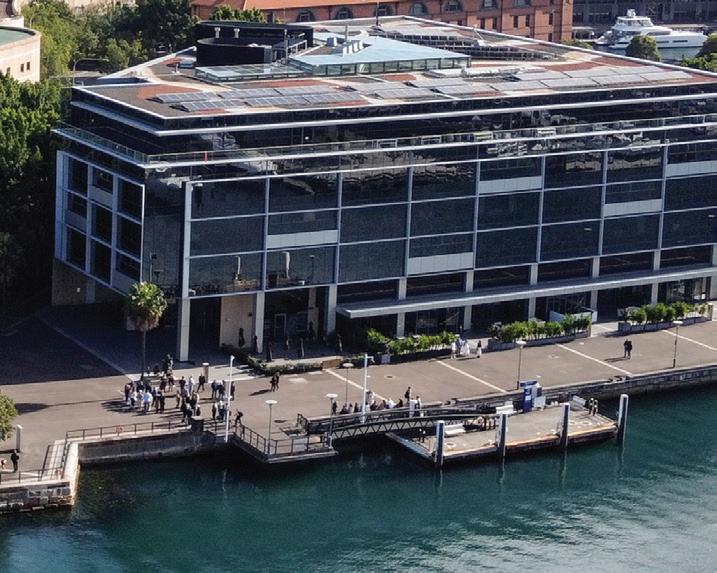
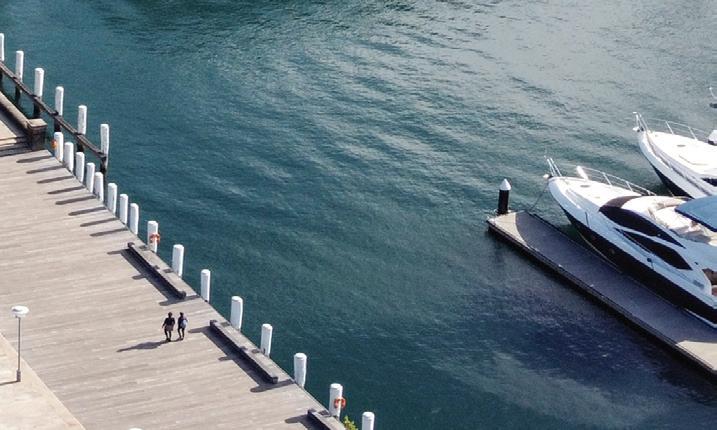
“Indeed, as of 7 April, it was announced that Bally’s was to take control of The Star in a AU�300m deal. All change – but hope for the future, perhaps”
The Bell Review, The Star was found unsuitable to hold a casino licence and as if by coincidence, the Responsible Gambling section in the Annual Report suddenly took up an entire page once again. In response to what happened at The Star, all of the directors resigned and a new Amendment Act was passed on 11 August 2022, which banned junkets from operating anywhere in Australia. Notably, an employee survey held at this time reported that while many wanted to “do the right thing,” there was a signi cant “lack of clarity on what ‘the right thing was.” Between July 2022 and 2023, there were 20 new appointments in Board and managerial positions at The Star, as well as more than 500 employees laid o . Four separation class action lawsuits were also submitted against The Star in the Supreme Court of Victoria, while AUSTRAC started civil penalty proceedings regarding the AML/CFT failures. This would result in record nes of $100m against The Star, as well as several directors hit with fines and banned from managing corporations in the future.
By the 2023 Annual report, the Responsible Gambling section was now a three-page spread, but none of it was revolutionary. The Star was also now on the front lines by itself, as Crown Resorts – the other company embroiled in this scandal – had accepted an $8.9bn takeover offer from Blackstone and was delisted from the Australian Securities Exchange. Now, all eyes were on The Star as the company desperately tried to steer the ship out of troubled waters with share prices falling faster than any anchor could. Indeed, between 1 January 2021 and 2024, they had fallen by 84%.
FY2024
Revenue: $1.68bn
Net pro t: -$1.69bn
By 2024, it was obvious that The Star was collapsing in on itself. It had been hit with millions in nes, its management team was more like a revolving door and its net pro t was down 71%. There was a glimmer of hope in May, when The Star’s team was insistent
that Hard Rock Hotels & Resorts was interested in buying the company. However, Hard Rock quickly denied this and further warned that any misuse of the Hard Rock name in unauthorised business dealings would be taken seriously, the matter would be investigated and necessary legal actions taken to protect their brand reputation. The Responsible Gambling section of the 2024 Annual Report swelled to six pages long and noted that the company had revised 57 policies and frameworks, including its Safer Gambling, Incident and Breach Management, Con icts of Interest and Whistleblower Protection policies.
BLACK HOLE (2025)
We are now in a period of post-collapse where, for a while, it seemed like there is no light left in The Star. On 3 March, Star Entertainment shares were suspended from trading on the stock exchange after the operator failed to submit its nancial results and explained that “there remains material uncertainty as to the group’s ability to continue as a going concern.” The Star was selling o assets and made it very clear that things were spiraling for the company.
Or at least, that would be the case, if several last-minute offers hadn’t come in. The Salter Brothers offered The Star $940m in debt support, while Oaktree Capital Management placed a $650 debt refinancing offer on the table. As if things weren’t hectic enough, the US casino giant Bally’s also extended an offer to the Australian operator. These offers didn’t go unnoticed either, as the Crisafulli Government deferred the licence suspension from 31 March until 30 September following The Star’s “ability to make material headway on some key measures within the set timeframe”. As such, just as The Star was about to fade out of existence, it seems that this once-promising spark might just survive its almost-certain fate and find its place in our galaxy once more.
Indeed, as of 7 April, it was announced that Bally’s was to take control of The Star in a AU$300m deal. All change – but hope for the future, perhaps.
Operating across Europe, Africa, LatAm and now Asia, Pronet Gaming has been an industry leader since 1996, combining advanced technology with an experienced team that brings deep B2C and B2B insights, and local market expertise.
Headquartered in London, with a presence in key cities across multiple continents, Pronet Gaming takes pride in offering bespoke, game-changing solutions. Its approach to business is rooted in collaboration, ensuring that each client receives tailored support throughout their journey.
With an unwavering commitment to personalised service, operators can benefit from a “start to finish” approach, with dedicated guidance at every stage of their growth. With a core differentiator being 24/7 support, their clients can be assured that they always have access to expert assistance.
Pronet Gaming’s mission is to empower iGaming operators with cutting-edge technology and a committed partnership, driving their success on a global scale. Built on a foundation of reliability, speed and innovation, its exceptional solutions foster lasting relationships that fuel operator growth and enhance player experiences worldwide.
“Our reputation as a trusted global partner stems from our ability to provide exceptional service to operators across Europe, Africa and Latin America,” says Alex Leese, CEO, Pronet
Gaming. “We found success in Brazil by taking a highly localised approach—having the right product, with the right people, at the right time and place. It is this very strategy that is guiding our expansion into Asia as we continue to rollout in the region this year and beyond.”
Pronet Gaming’s flagship offering is a fully customisable entertainment platform designed for next-generation operators. The platform goes beyond standard design tweaks, enabling clients to build truly bespoke gaming experiences across casino, sportsbook, betting exchange and retail solutions. Its flexibility ensures seamless adaptation to market changes and future developments.
The company’s robust turnkey platform powers online gaming businesses with industry-leading technology. It processes over 85 million bets per day and allows operators to gain access to an extensive catalogue, including over 20,000 live casino games and slots from over 100 top-tier providers. The platform also boasts a powerhouse offering with over 420,000 live e-sports events, over 250,000 horse races from more than 25 countries and 500,000 pre-match sports events annually. In addition, Pronet Gaming provides a full 360-degree betting exchange, an agent management system and an omni-

channel retail solution, ensuring a seamless user experience across all channels.
Pronet Gaming has seen rapid expansion in recent years, providing casino and sportsbook platform solutions to operators across diverse markets. With a strong footing now established in Asia, the company is well-positioned to showcase its global expertise.
“Asia presents a strong opportunity for a B2B provider like us to serve the established local B2C market while also enabling other global B2C operators to launch their brands into the region. Leveraging our entry as an advantage, we bring a data-driven approach – applying fresh insights and strategies free from legacy inefficiencies – to deliver cutting-edge solutions tailored to the evolving needs of operators,” says Leese. “In fact, we are currently onboarding 15 new clients across Thailand, Vietnam, the Philippines and Malaysia.”
Significant investments in IT development have equipped Pronet Gaming with the tools and agility to deliver region-specific solutions that provide operators with a competitive edge. By using its vast experience in other global markets, the company aims to support Asian operators looking to expand into Latin America and beyond.
Regarding its expansion into Asia, Pronet Gaming participated in the recent SiGMA Eurasia in Dubai, UAE and followed up with a notable showcase at SPiCE South Asia in Colombo, Sri Lanka. The latter presented a prime opportunity for the company to highlight its tailored solutions and demonstrate how operators can benefit from its technology and expertise.
“Our recognition as the ‘Best Platform Provider’ at the SPiCE South Asia Eventus Awards this year is a testament to the outstanding work our team has put into developing a locally optimised iteration of our award-winning platform,” says Leese. “We look forward to further strengthening our presence in Asia by continuing to innovate in ways that deliver real value to our partners.”
With its unwavering focus on innovation, partnership, and customer success, Pronet Gaming is poised to become a leading force in the Asian iGaming landscape, providing operators with the tools and support needed to thrive in an increasingly competitive market.




